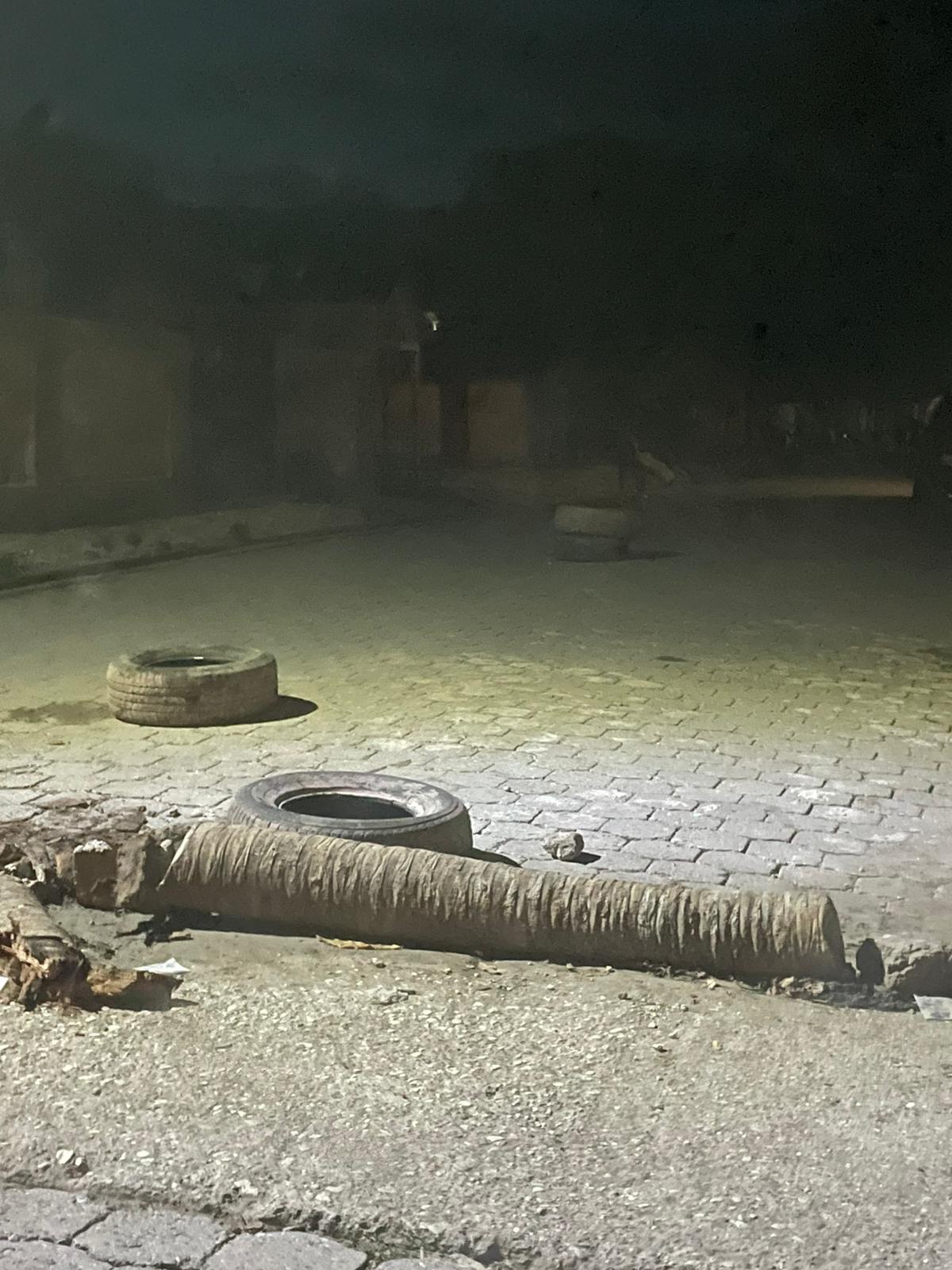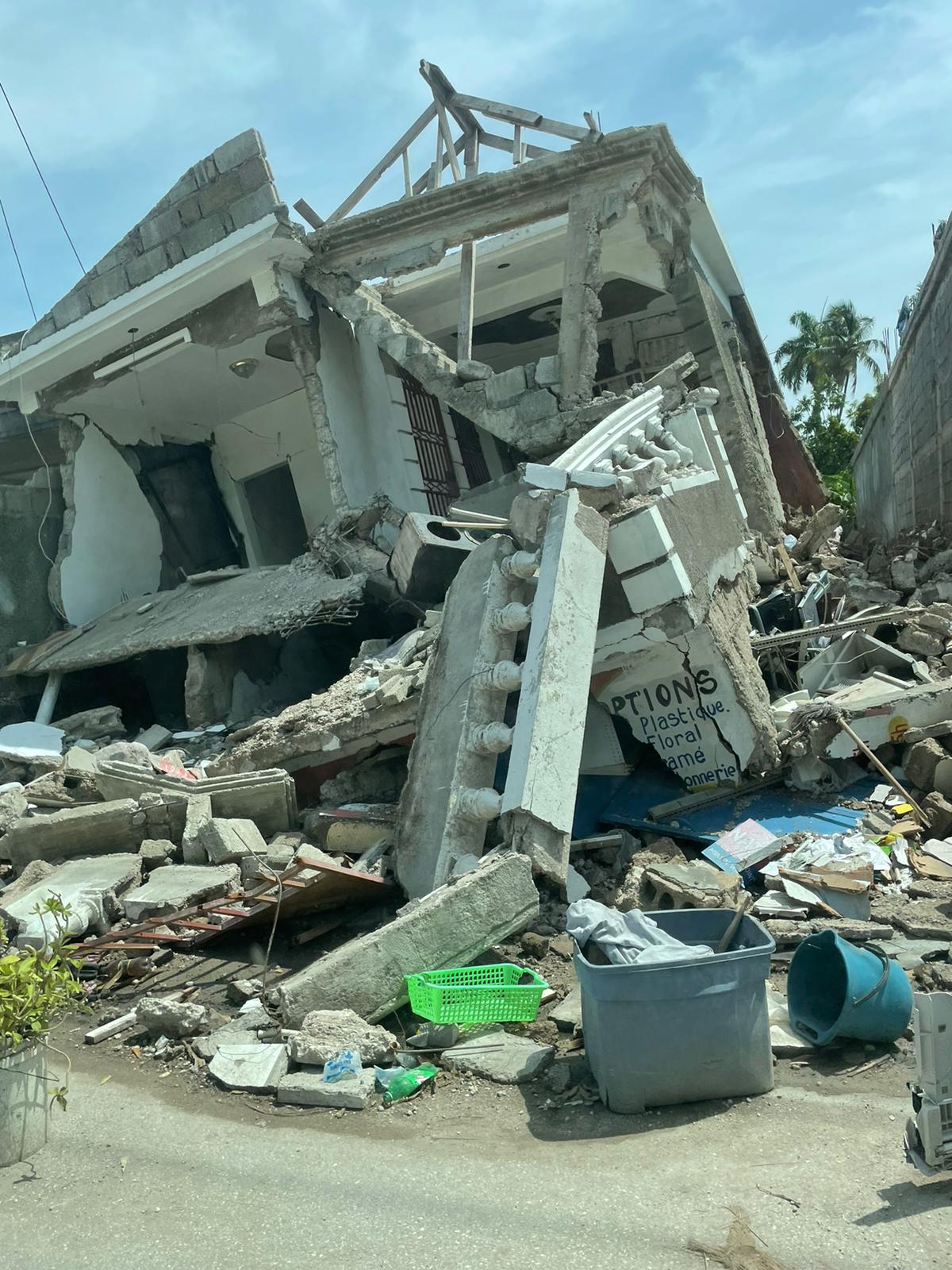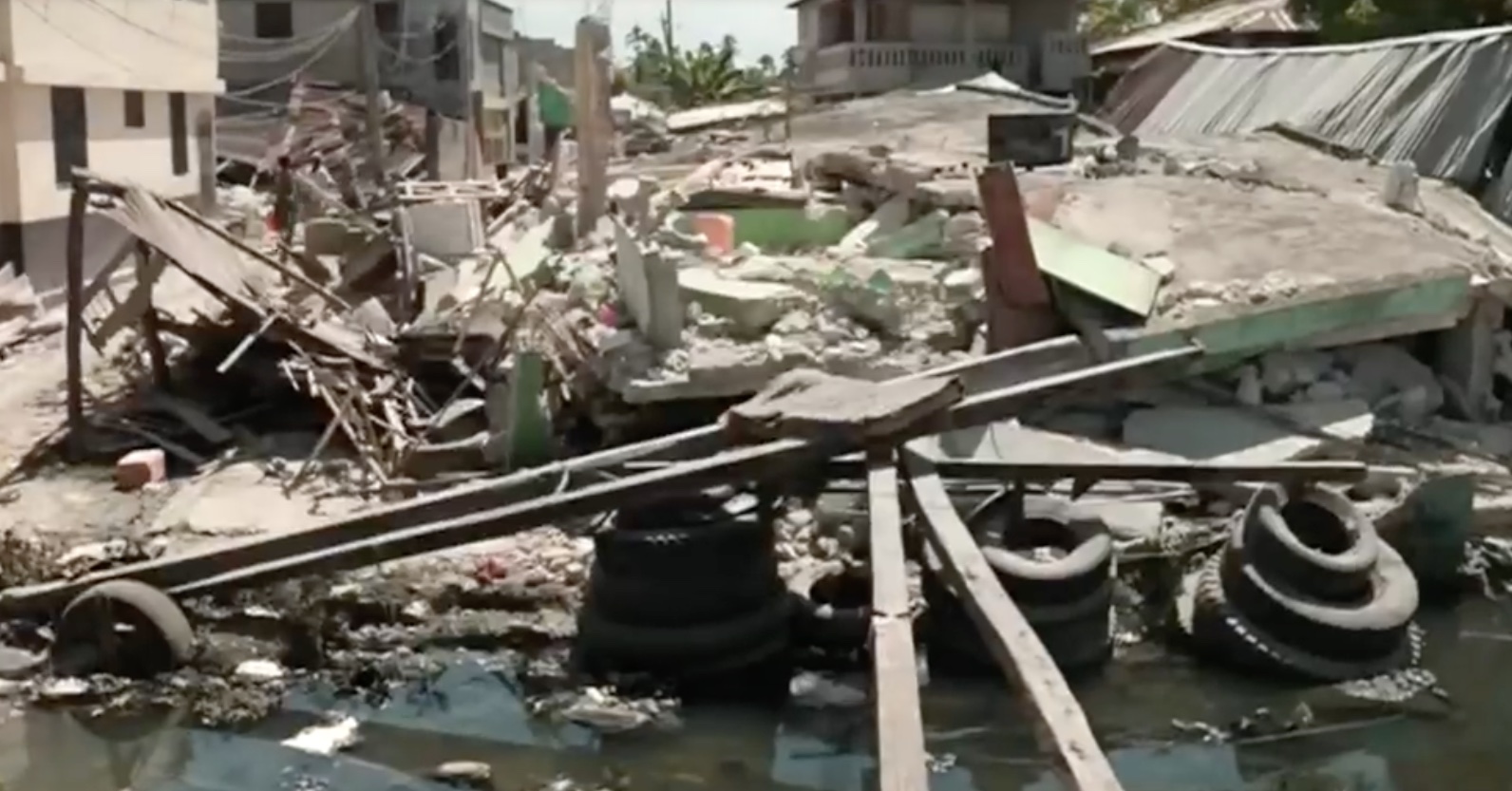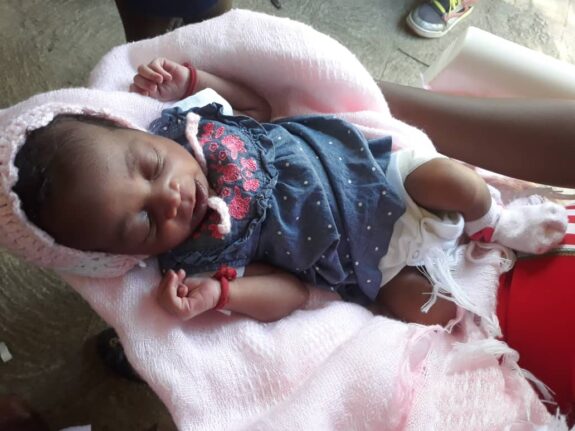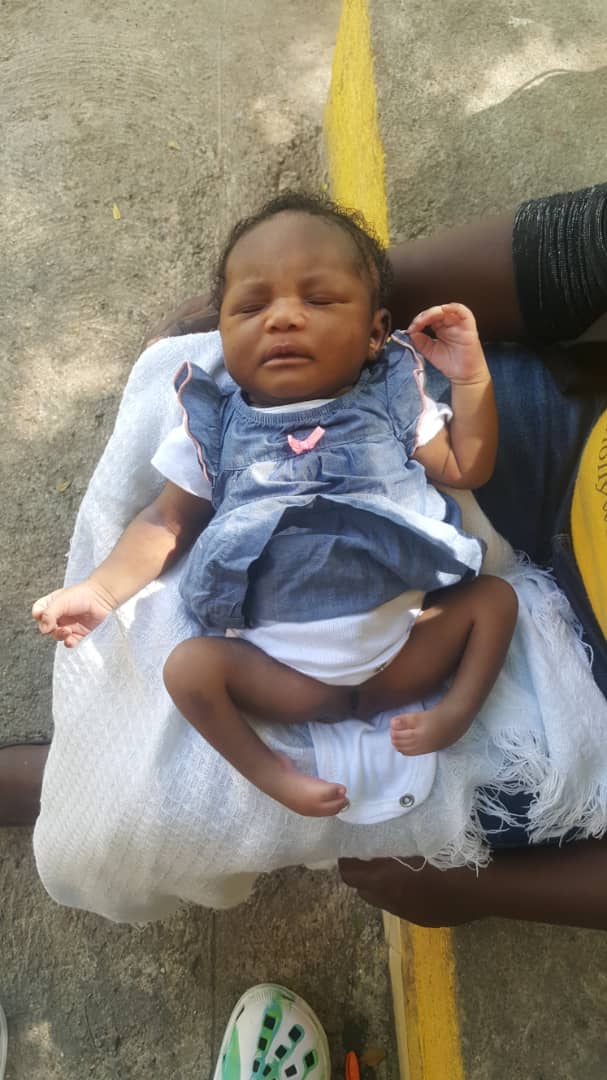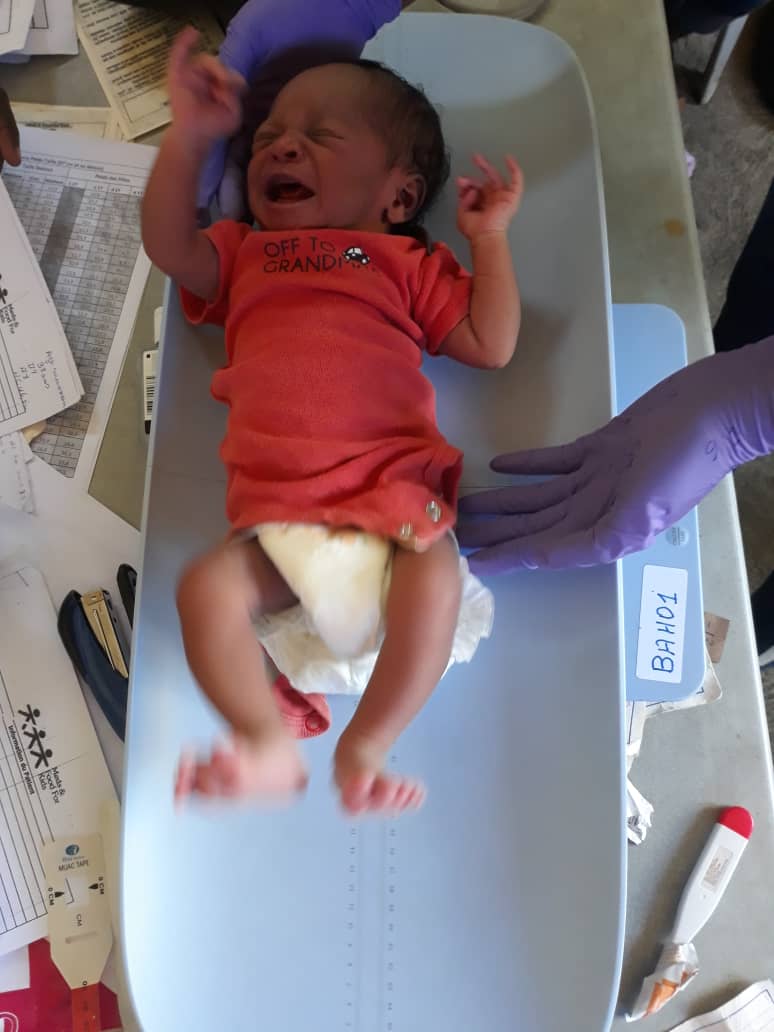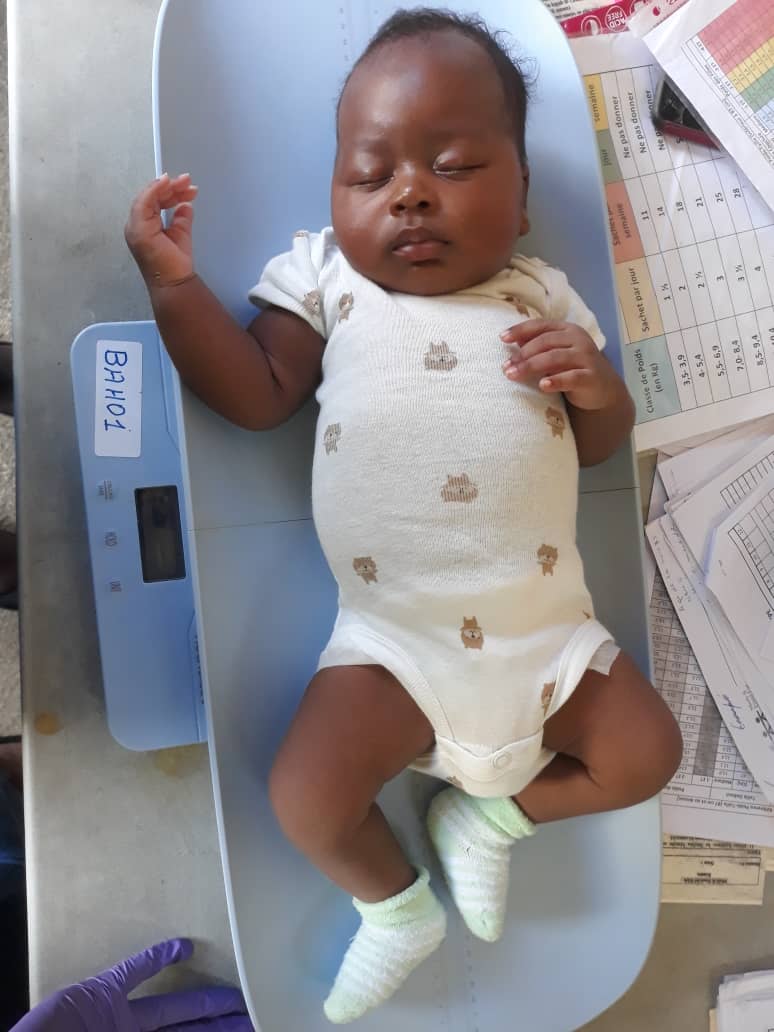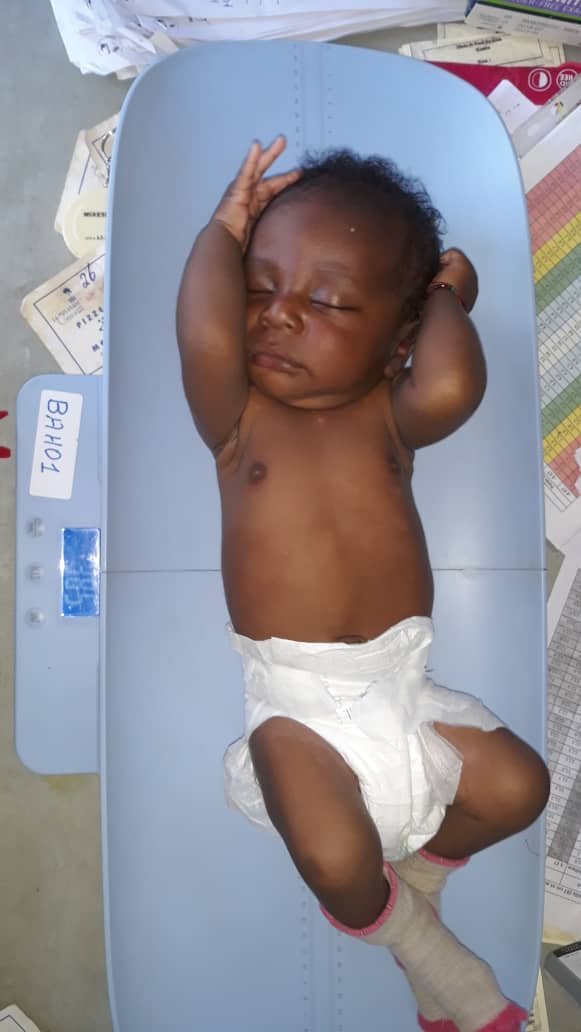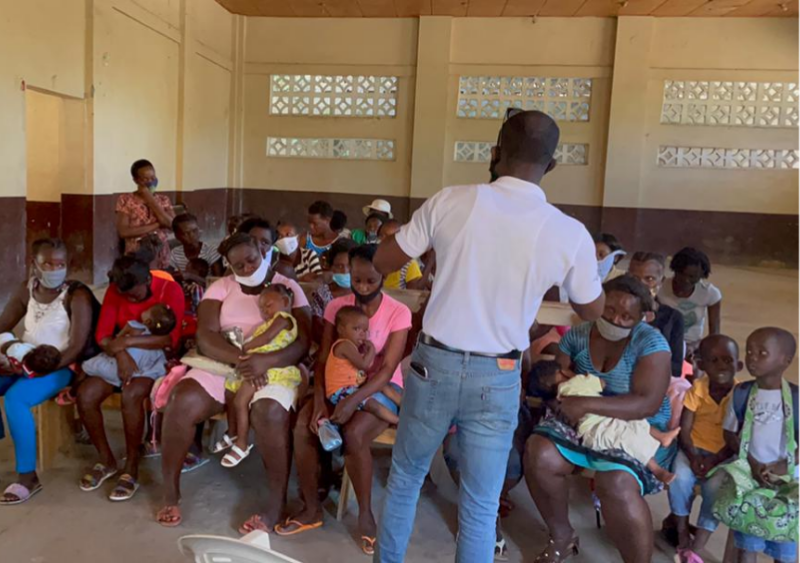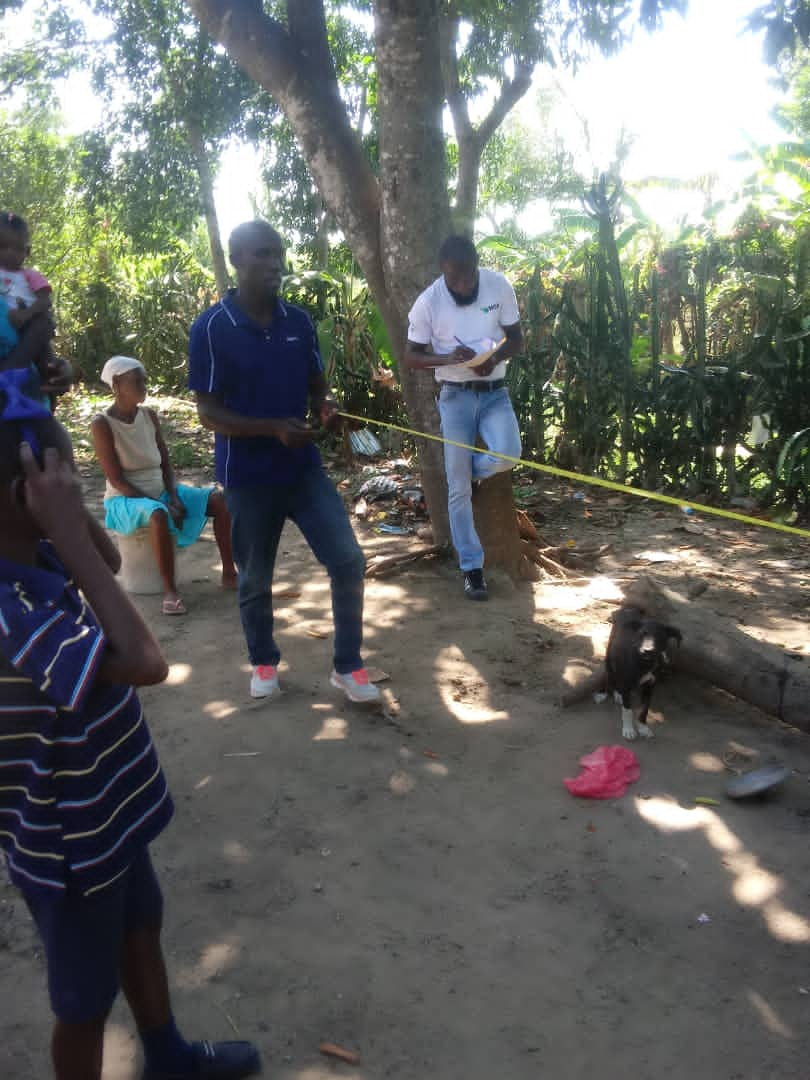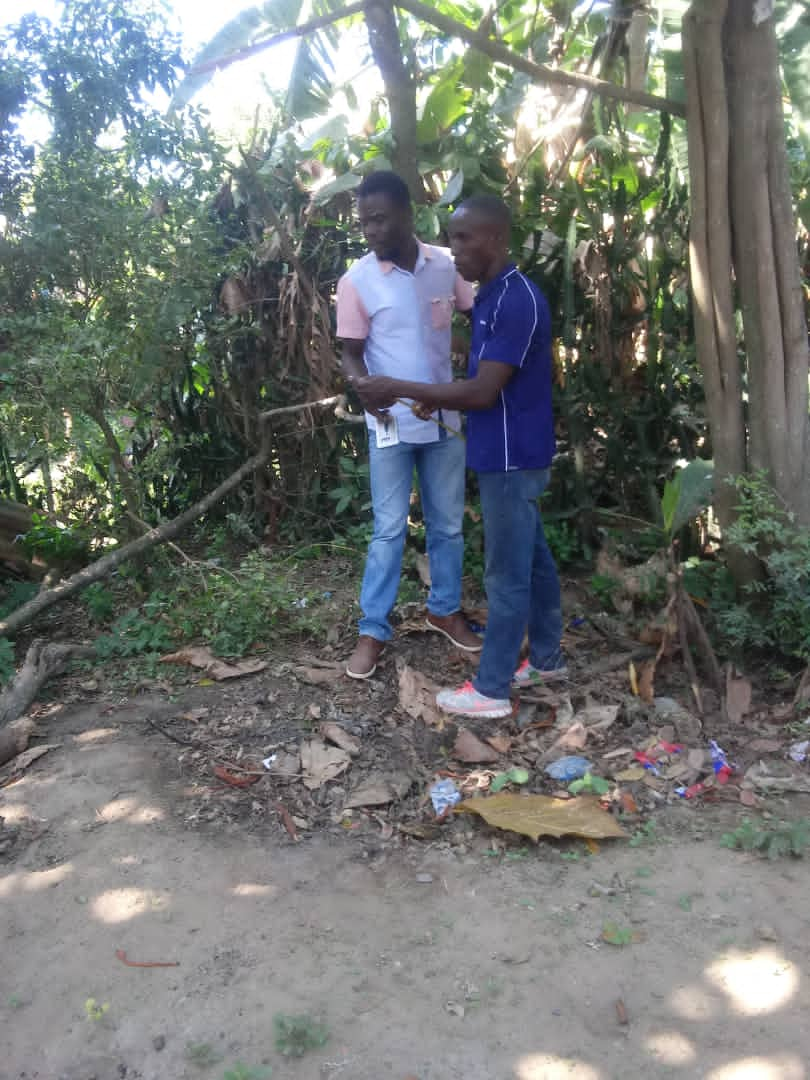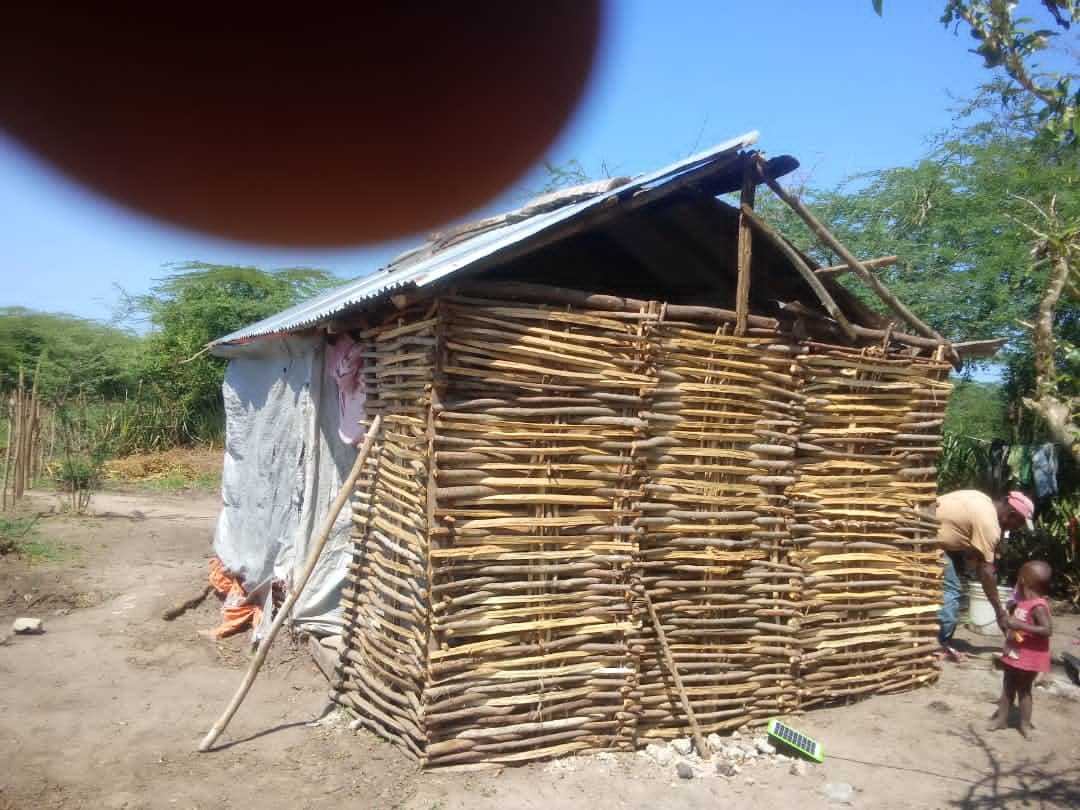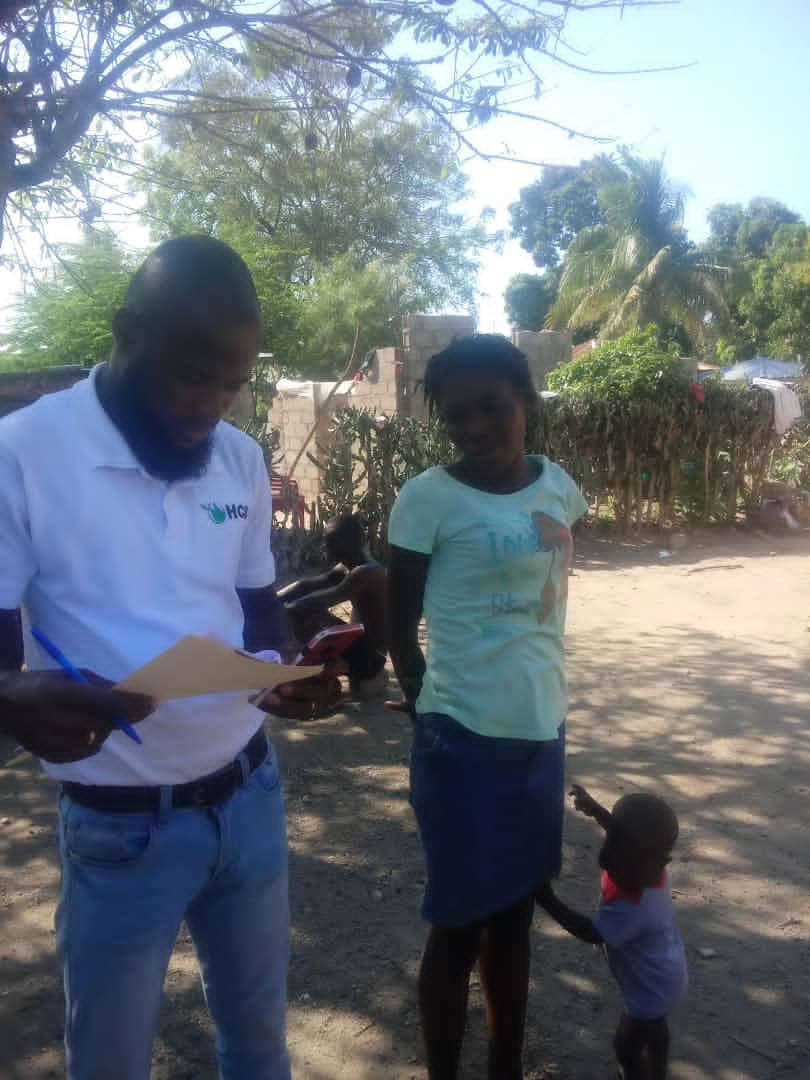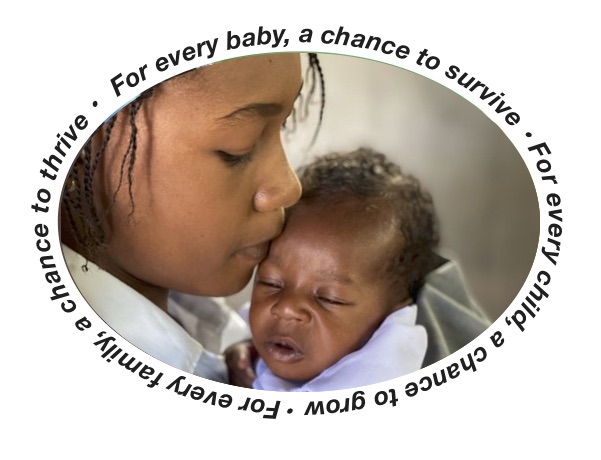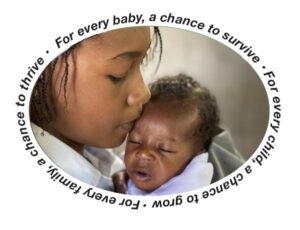There are as many ways to honor those we love as there are loved ones to honor. Here are 4 tributes, just a few among many, that move and inspire us on an UPbeat note as our HUFH team faces down the challenges of life in Haiti and delivers our lifesaving programs. We hope you will feel inspired as well.
What better way to honor a life of service to children than to create a program that helps them as they grow?
We recently started a new program called Kairam Klinik Byen Bèbè, a well-baby preventative care clinic dedicated to the memory of our dear friend and Board member Dr. Hemant Kairam.
Each month in Kairam Klinik we see up to 200 babies for preventative care, something that is not the norm in Haiti, but through which we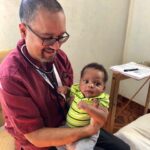
can identify feeding and development problems and other diseases and help keep children out of our Malnutrition Program and the hospital. The clinic, intended to support the lifesaving programs for children that Dr. Kairam worked tirelessly to build and grow during his lifetime, was sponsored by his family: his wife Dr. Neeraja Kairam, children Arin, Devin and Elana, parents Raj and Bala Kairam, and brother Jay.
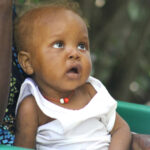 We at Hands Up for Haiti continue to secure Dr. Kairam’s memory as a blessing to the children we help, and we thank the Kairam family, and many of you, for making this possible.
We at Hands Up for Haiti continue to secure Dr. Kairam’s memory as a blessing to the children we help, and we thank the Kairam family, and many of you, for making this possible.
Read more about Dr. Kairam and the programs for children he championed here.
What better way to secure a legacy than by building on another?
The Kairam Klinik was built on the foundation of HUFH’s existing programs, programs boosted by the generosity of the family of Judy McAvoy in her memory. Judy was a founding member of HUFH who championed our maternal-child health care programs.
In the words of Judy's son, Brendan:
My mom had always been one of those people who wanted to help others first. Her dream job growing up was to join the Peace Corps and she made a life of helping other people (specifically babies and their mothers) as a pediatric nurse.
The tragic earthquake that hit Haiti back in 2010 was a call to action for her to basically form her own type of "Peace Corps". When she 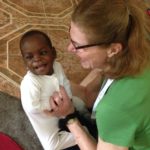 and a few colleagues in the medical field saw how badly help was needed, they gathered a group of people with as many medical supplies as they could carry and traveled to Haiti to help in any way they could.
and a few colleagues in the medical field saw how badly help was needed, they gathered a group of people with as many medical supplies as they could carry and traveled to Haiti to help in any way they could.
And so began Hands Up for Haiti.
Mom came back raving about the people and the country and since that first trip, it became her passion to help them receive the medical care they desperately need but don't have available to them.
She passed away way too early, but laid the groundwork for this great cause as a founding member…
She's definitely one of the ones who left her mark in her time here."

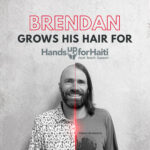
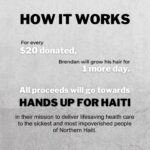
Judy's dedication and passion inspired Brendan to create an unusual fundraiser for HUFH: growing his hair for Haiti! You can read more about it here. Many thanks to Judy’s husband Jim and to Brendan and the rest of the McAvoy family and friends for keeping Judy’s legacy alive, and her memory burning bright.
Read more about Judy McAvoy and the maternal/child health care programs she championed here.
What better way to honor both the past and present together?
Thanks to the generosity of Christelle Dorcil, a Haitian-American attorney based in New York, we were able to build our 15th clean water well in a neighborhood of Madeleine, near our office clinic, that had no drinkable water. Christelle dedicated the well to honor her Haitian ancestry: to celebrate her mother’s birthday and in memory to her Haitian grandmother. Because clean water is key to good health, Christelle’s gift ensures a lasting legacy of better health to an entire community in need.

The plaque that sits on the well:
In honor of Mother Mirta Thomas (with Christelle on the left)
& My Grandmother Andrea Damezal (with Christelle as a child on the right)
Read more about our Community Clean Water Project here.
And what better way to celebrate of the circle of life than with a gift of life?
Thank you to Matt and Amanda Friedman, who donated the funds to dig and maintain our 16th community clean water well in honor of the  engagement of Melissa Buckley and Dr. Adam Handler. Dr. Handler is a HUFH Board member and program mentor and is passionate about the need for clean water to ensure good health. This beautiful tribute to Adam and Melissa's love will provide clean water to a community of nearly 4000 people.
engagement of Melissa Buckley and Dr. Adam Handler. Dr. Handler is a HUFH Board member and program mentor and is passionate about the need for clean water to ensure good health. This beautiful tribute to Adam and Melissa's love will provide clean water to a community of nearly 4000 people.
Read more about our Community Clean Water Project here.

There are so many ways to show your support, honor a loved one, or sustain a living legacy.
With your generous support, the spirit of so many of our dedicated volunteers will live on in the children and families of Haiti, whose brighter futures they helped build.
In these challenging times,
Haitian Run + Haitian Led = Lifesaving Programs that Build a Better Future
And they can do it because of YOU!


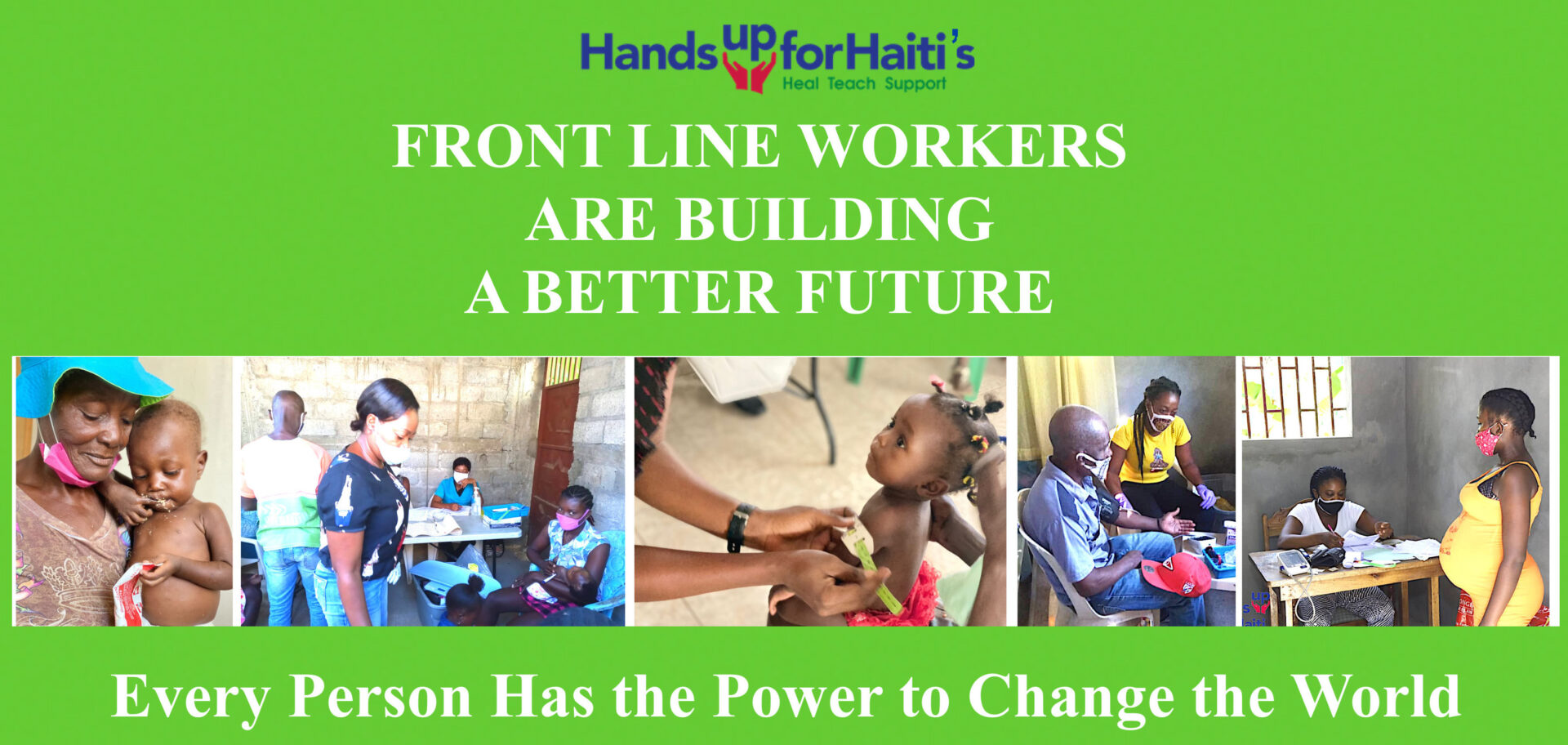


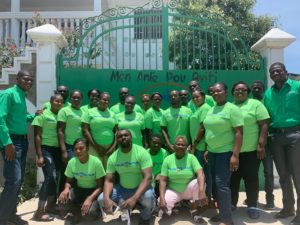 themselves to support my people. While they are making all those efforts, I would be guilty to stand with hands folded, seeing my brothers and sisters dying because of lack of healthcare. Sure, it is dangerous and insecure for everyone in Haiti, including our employees, but the situation would be worse if we abandoned communities in the countryside -- if no one heard their voices because the shortage of the gas. To go to work despite the situation in Haiti, you have to have a good heart and love others: I consider all the employees at HUFH as bon samaritan."
themselves to support my people. While they are making all those efforts, I would be guilty to stand with hands folded, seeing my brothers and sisters dying because of lack of healthcare. Sure, it is dangerous and insecure for everyone in Haiti, including our employees, but the situation would be worse if we abandoned communities in the countryside -- if no one heard their voices because the shortage of the gas. To go to work despite the situation in Haiti, you have to have a good heart and love others: I consider all the employees at HUFH as bon samaritan."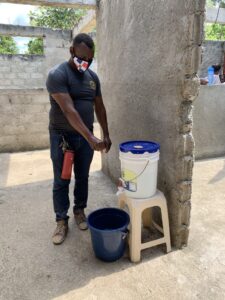
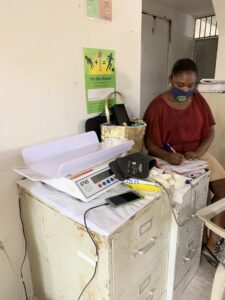
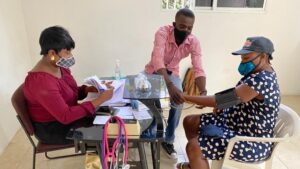
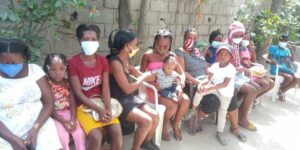
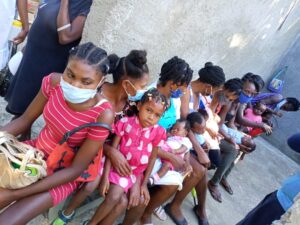
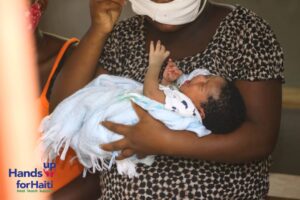
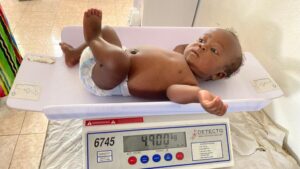
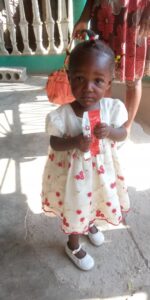
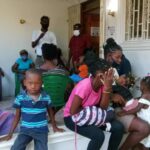
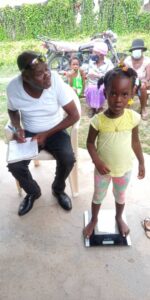
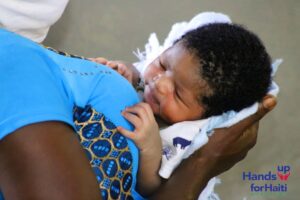
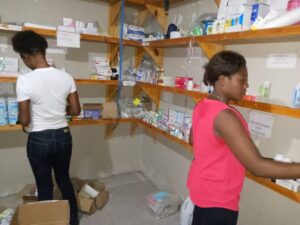
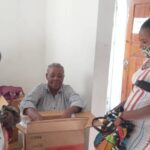
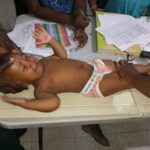
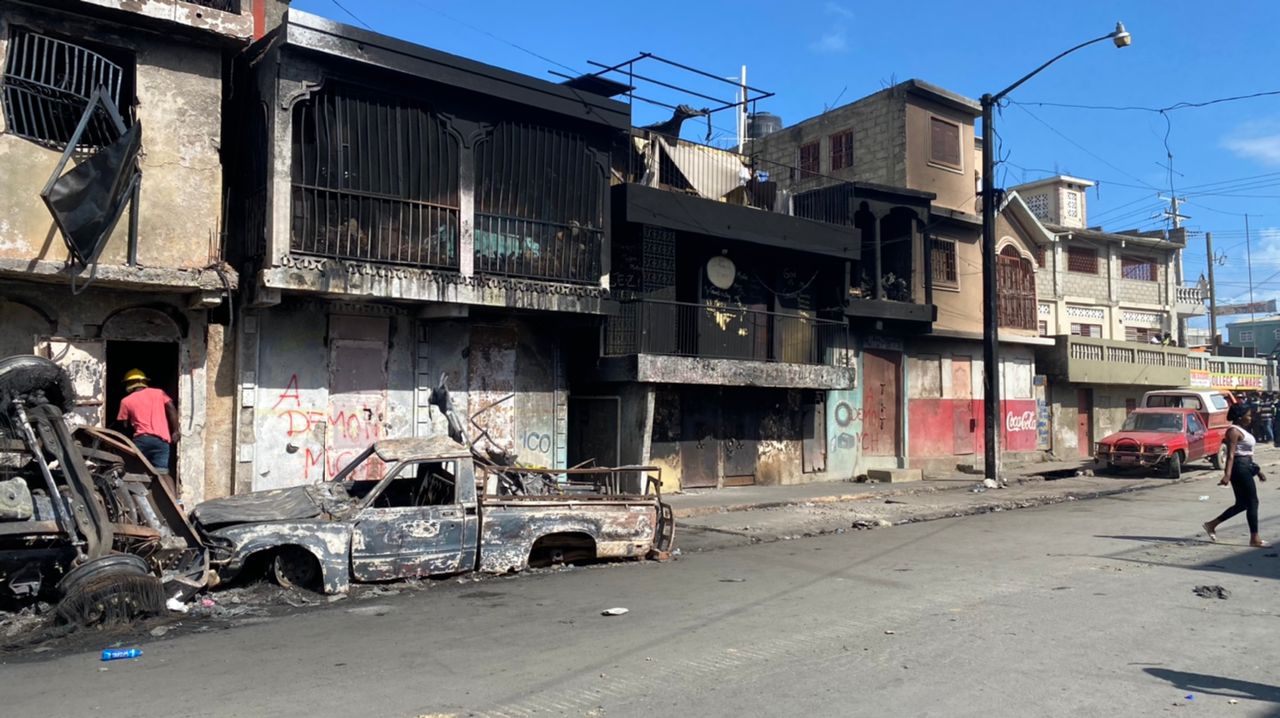
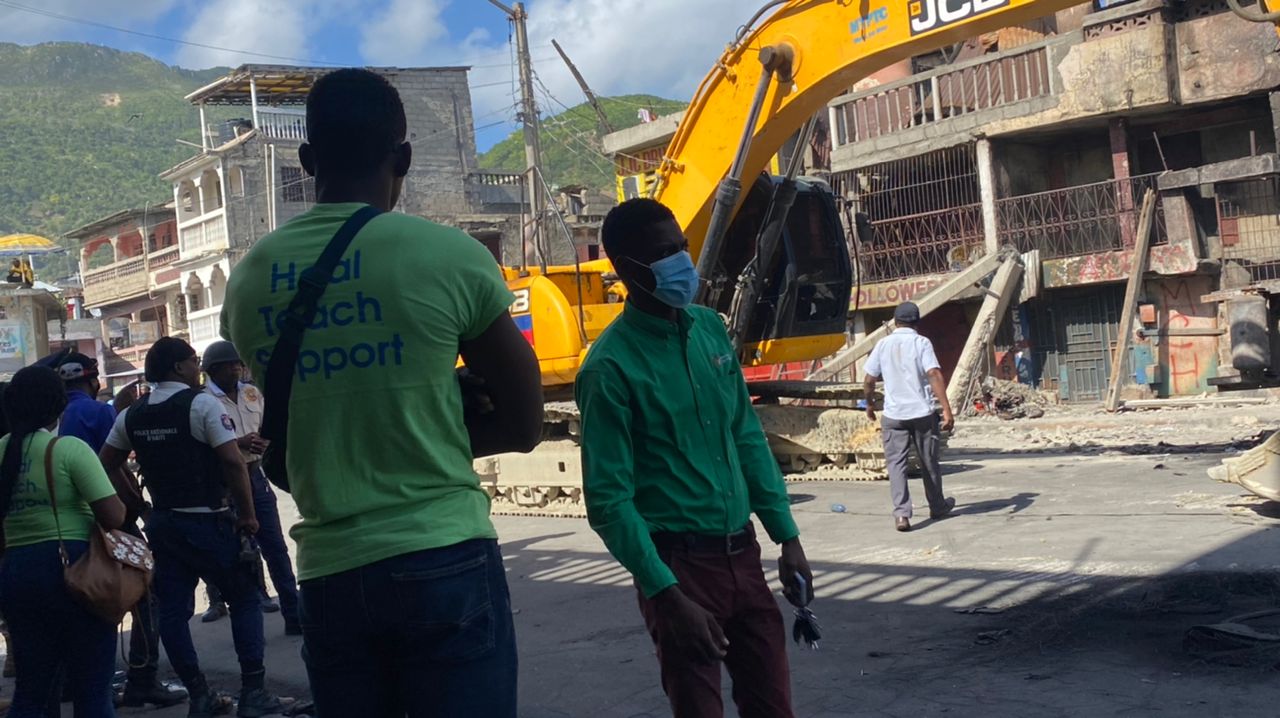
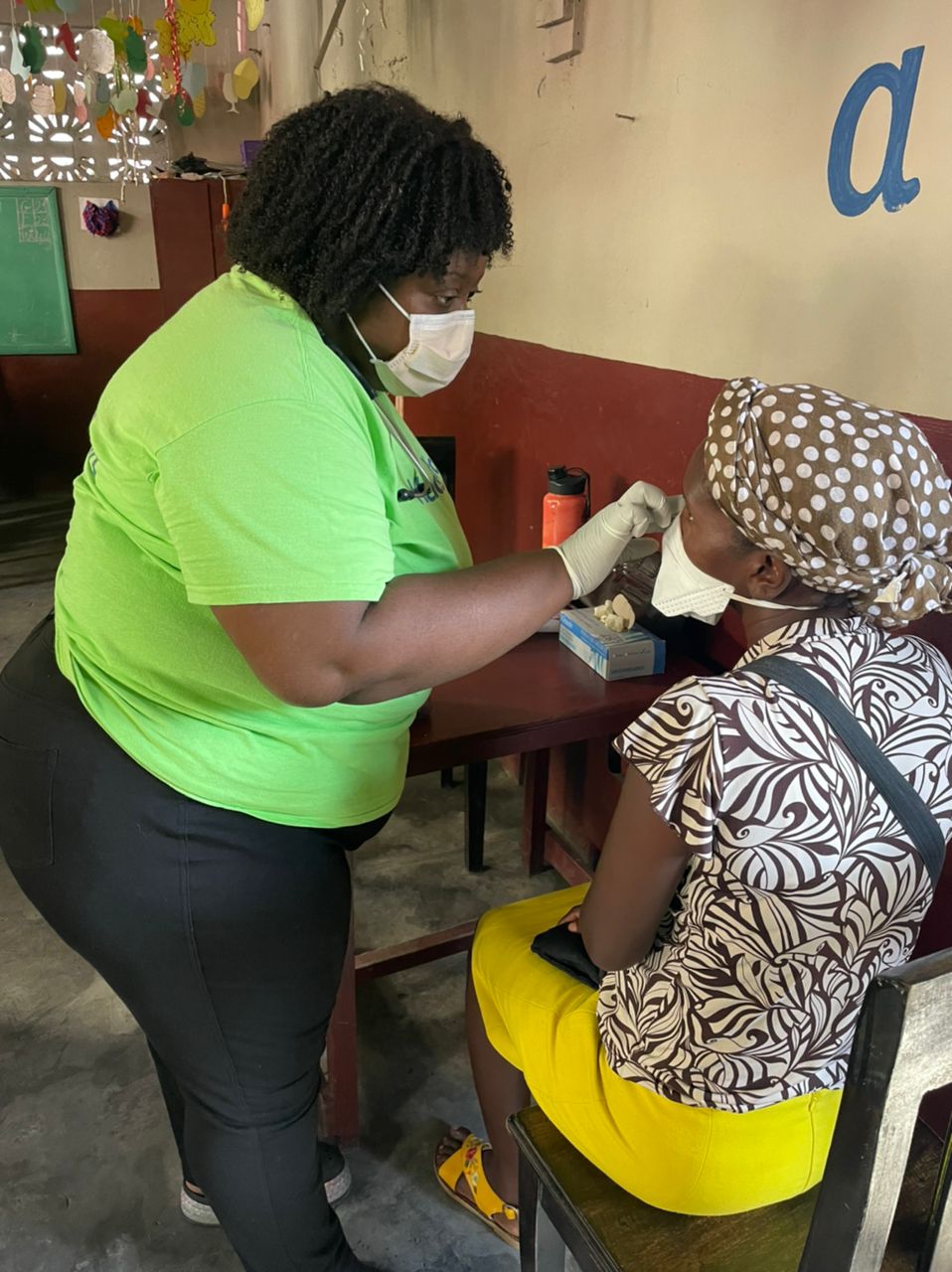
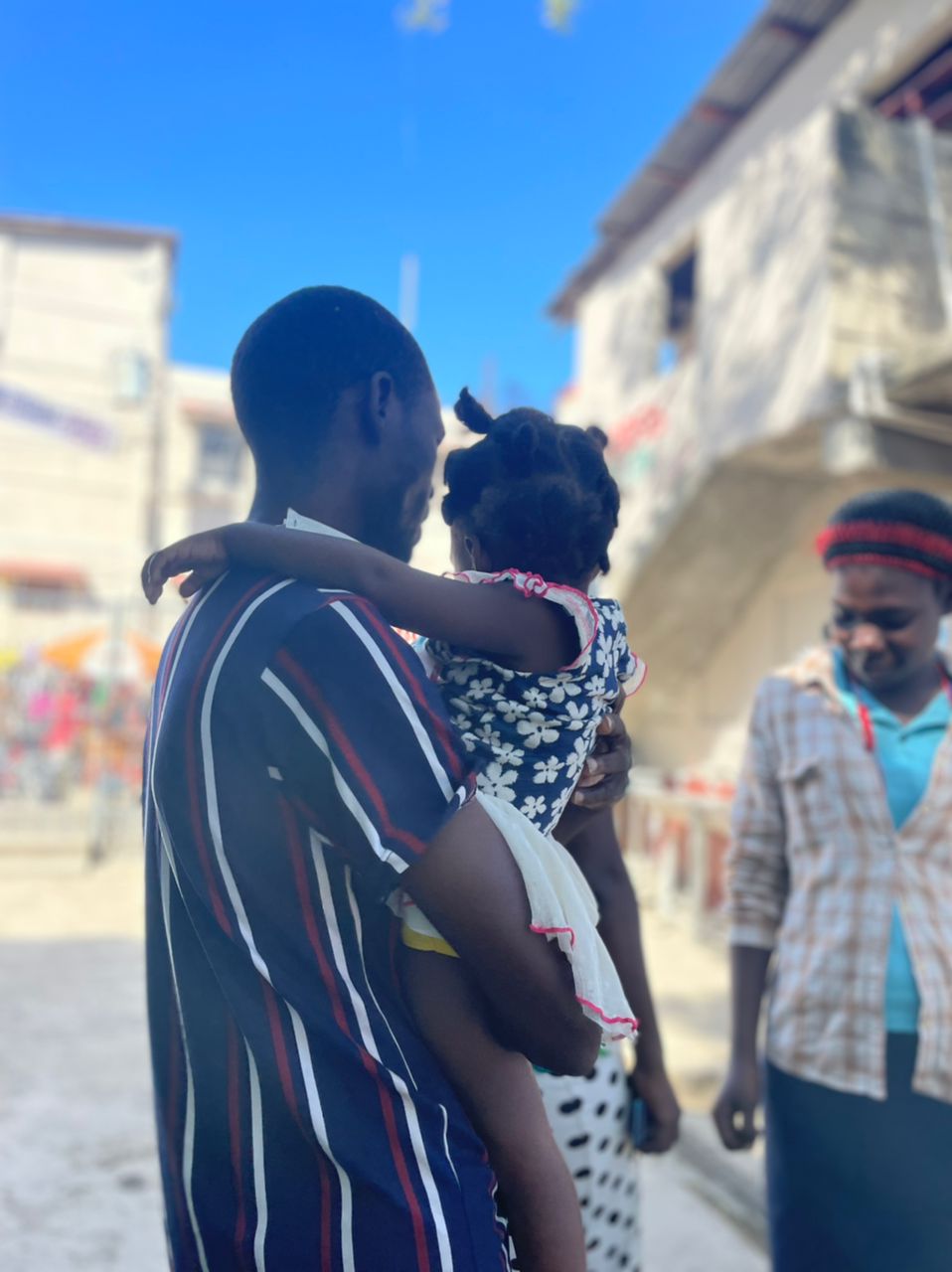
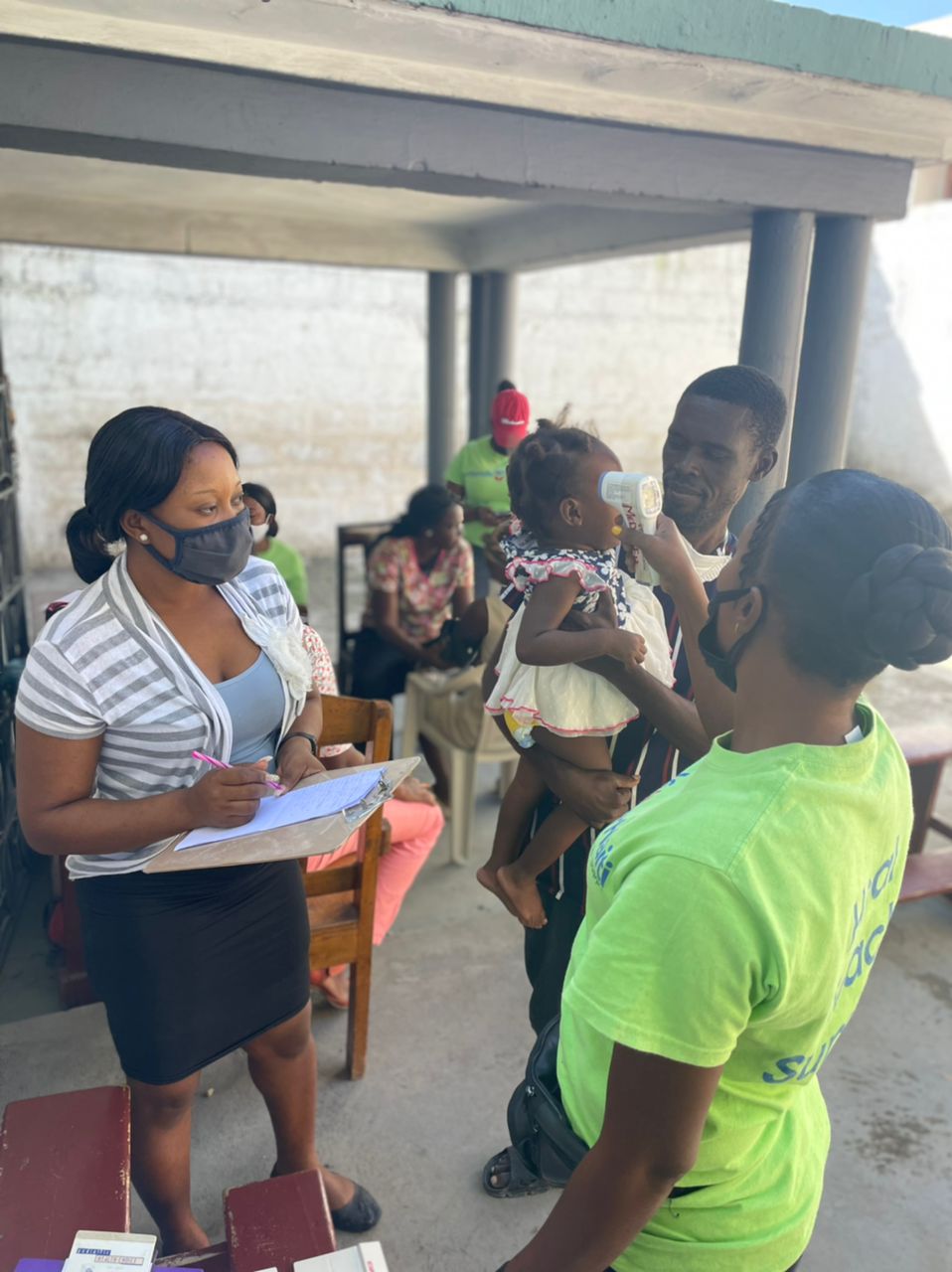
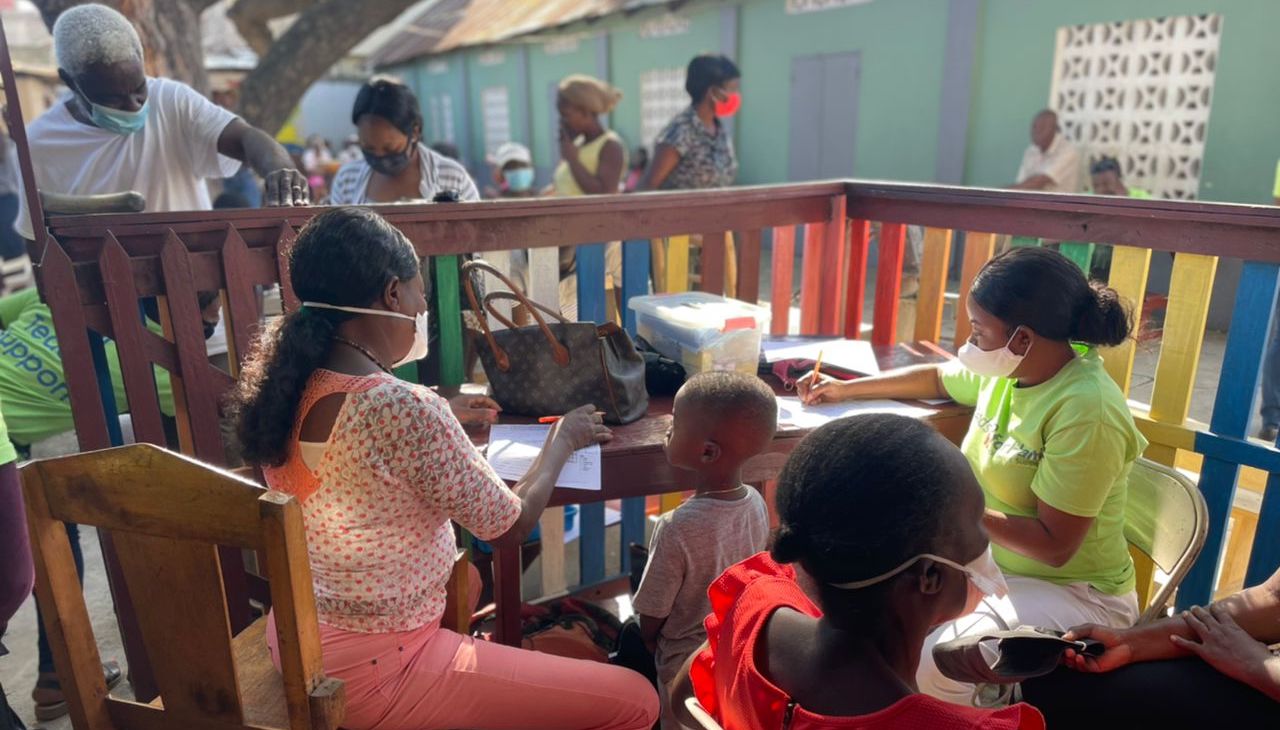
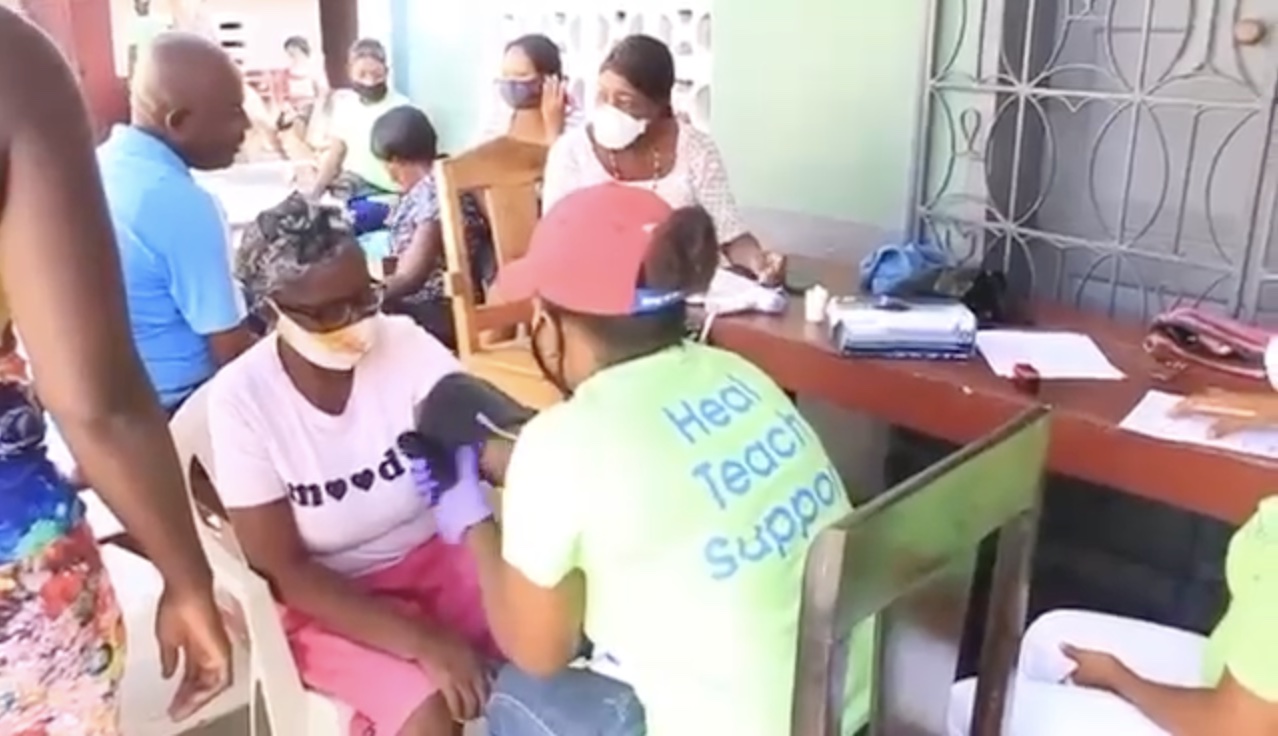
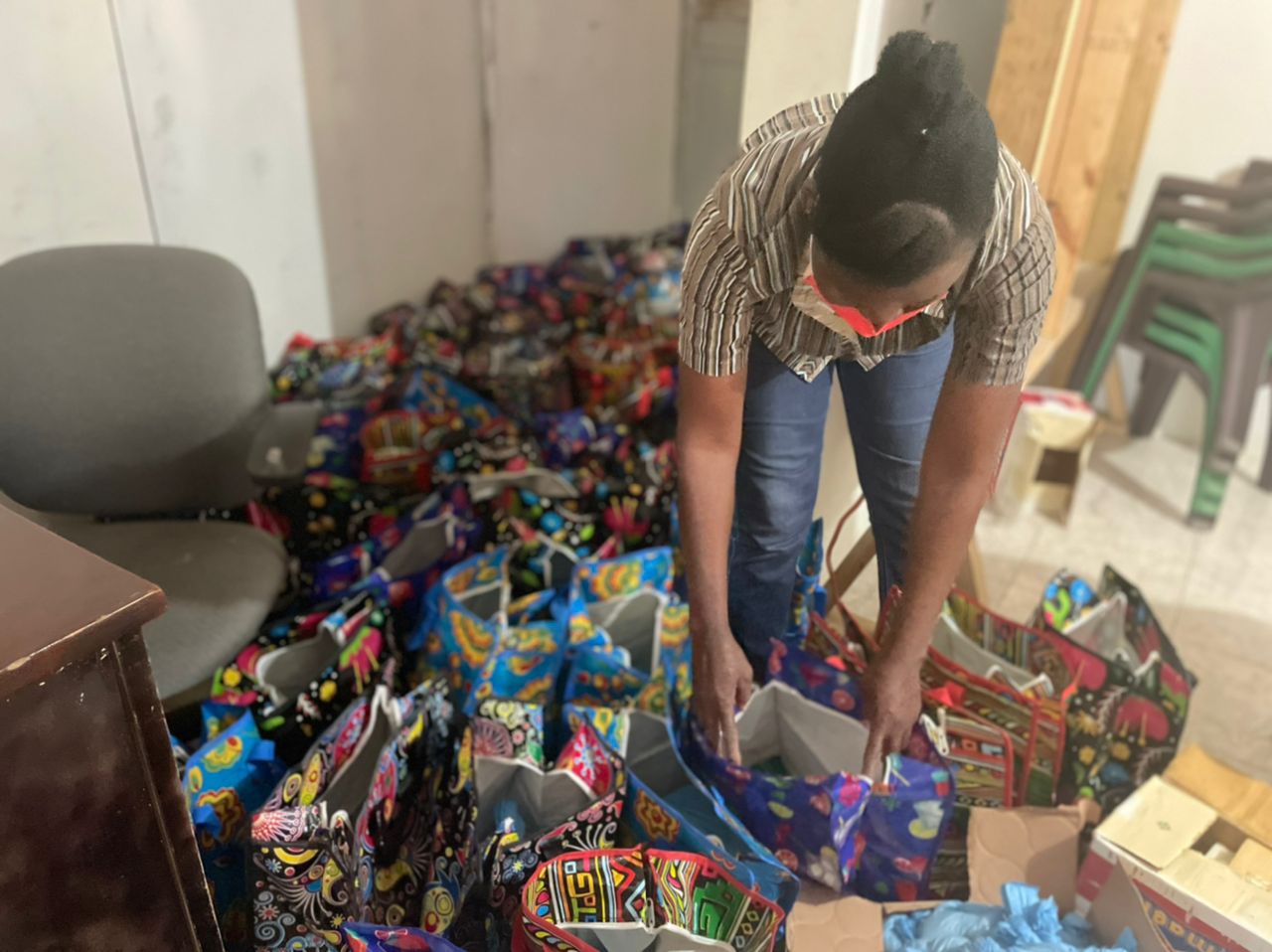
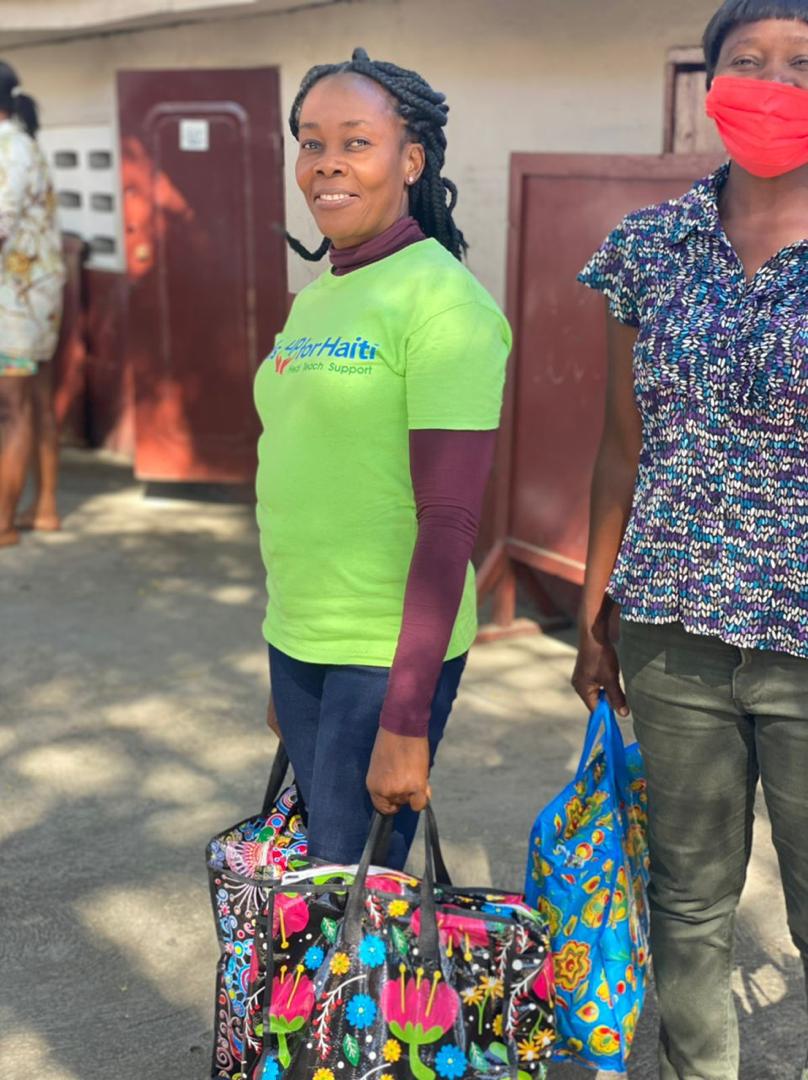
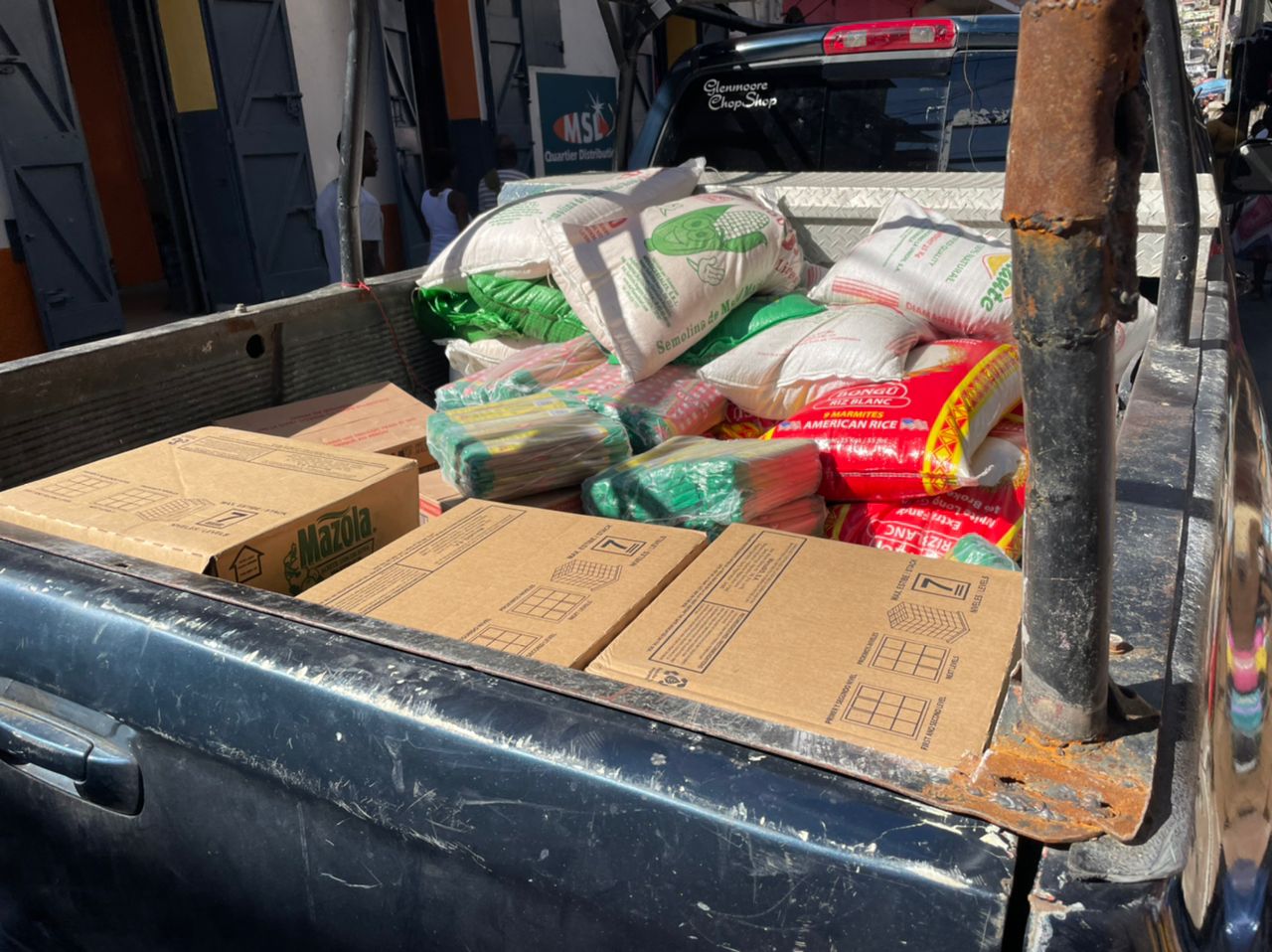
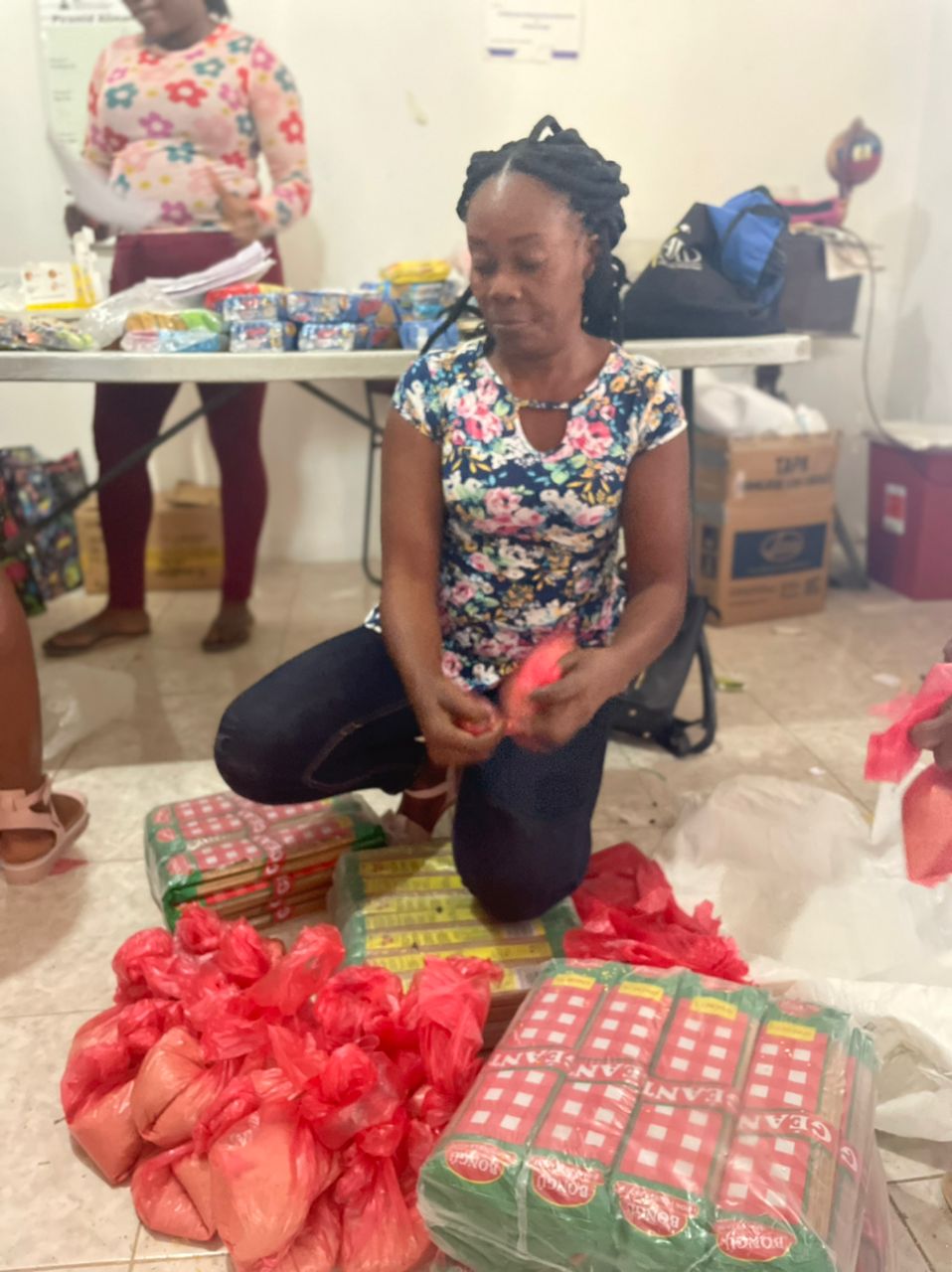
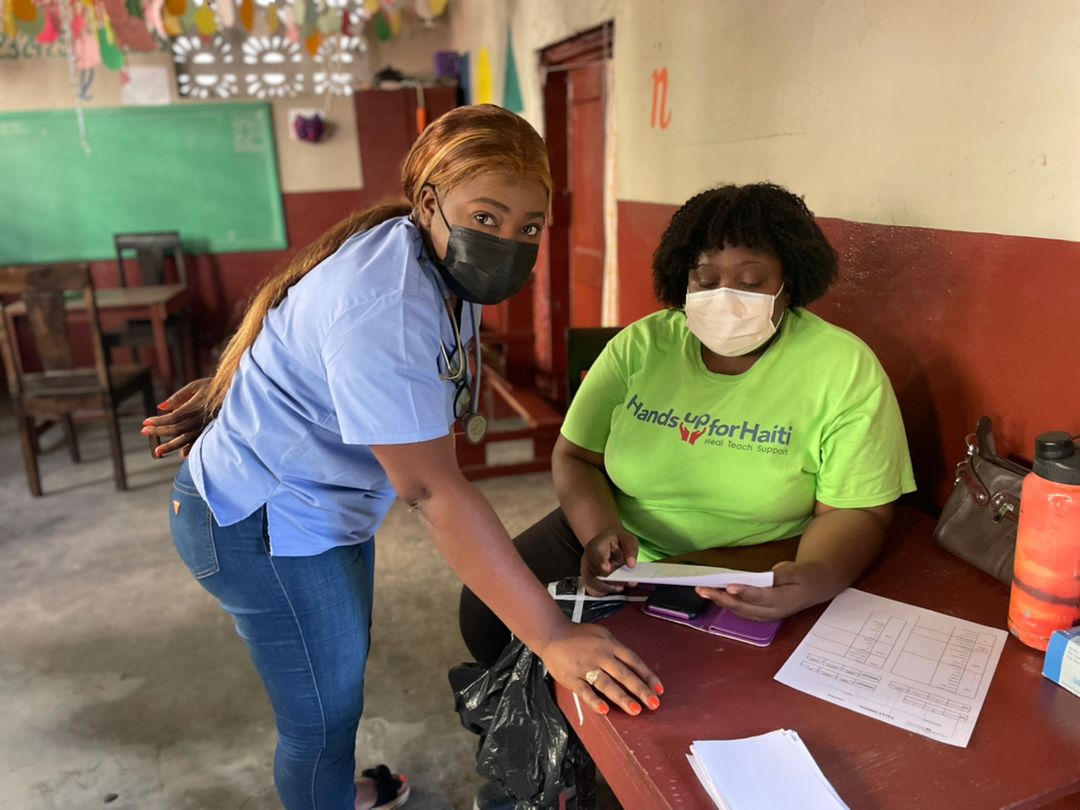
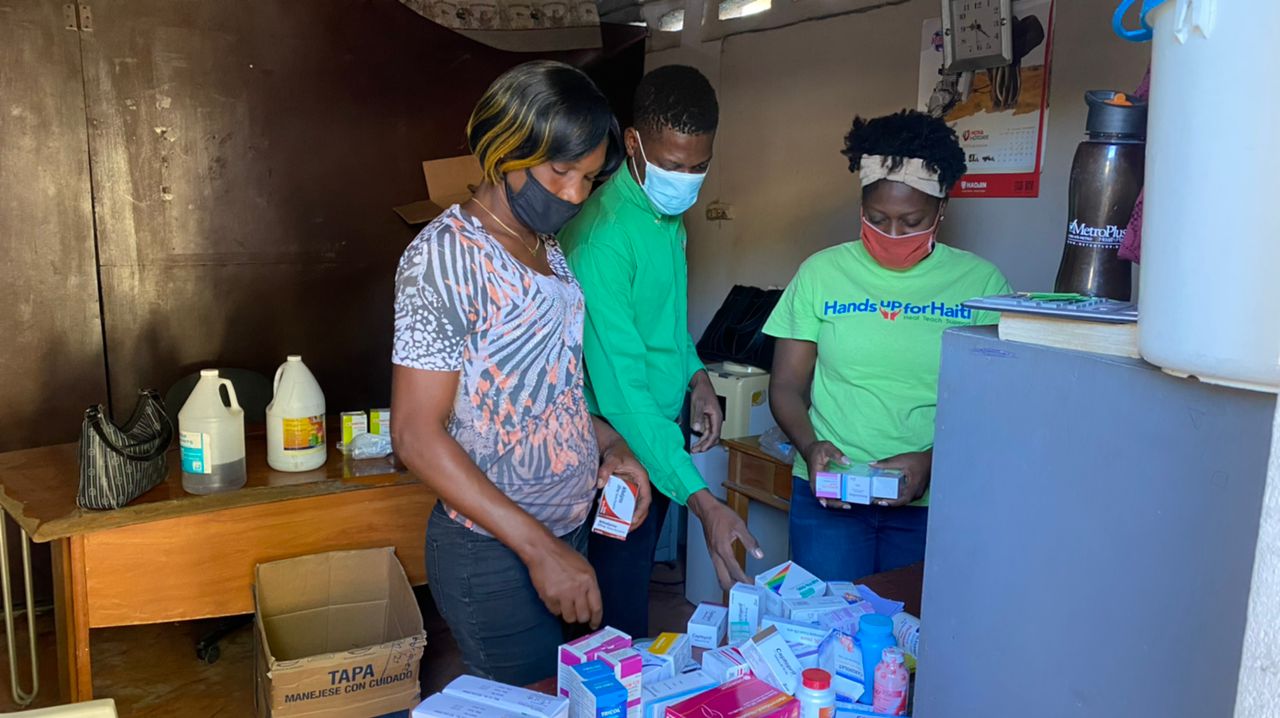
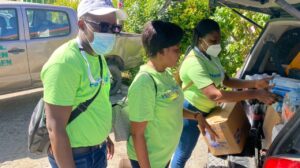
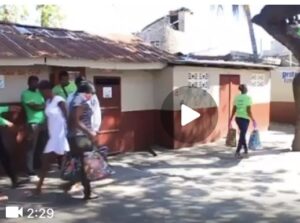
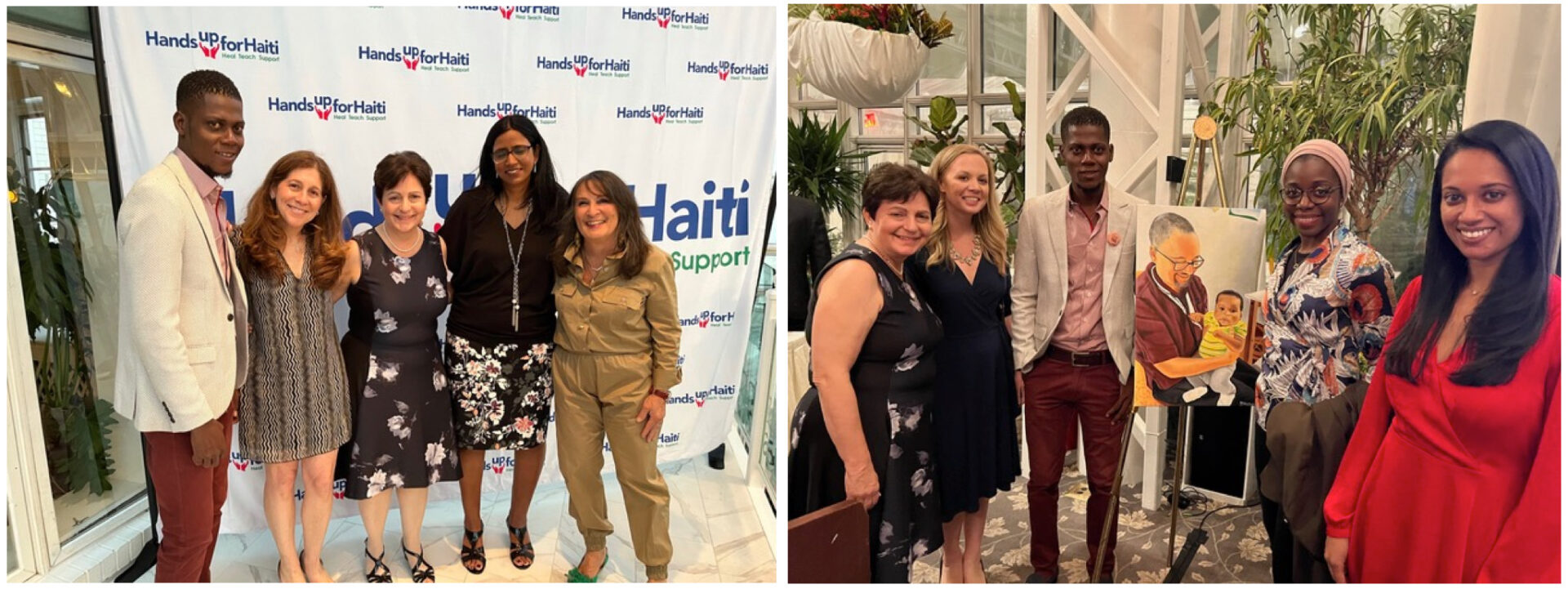
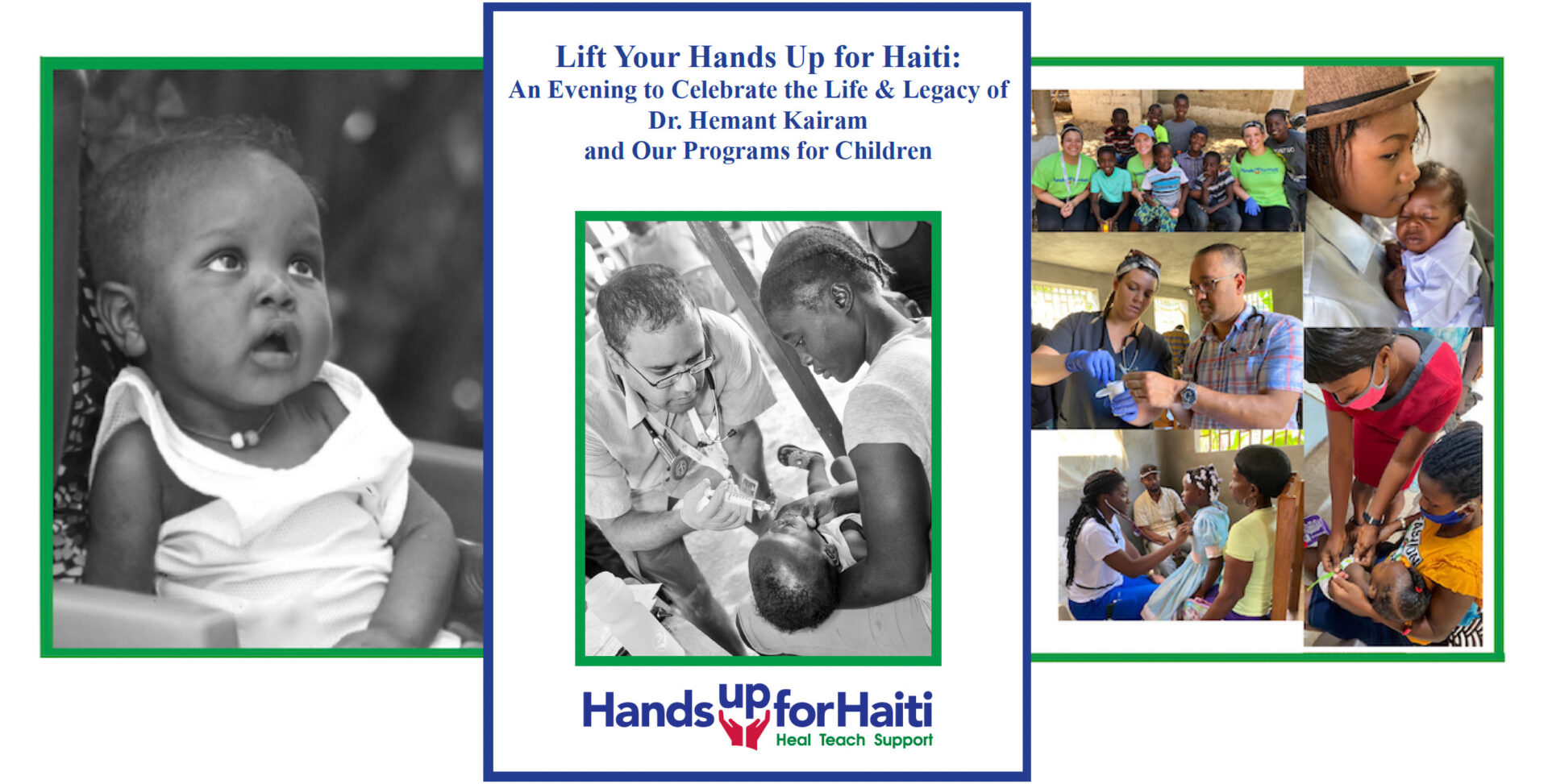
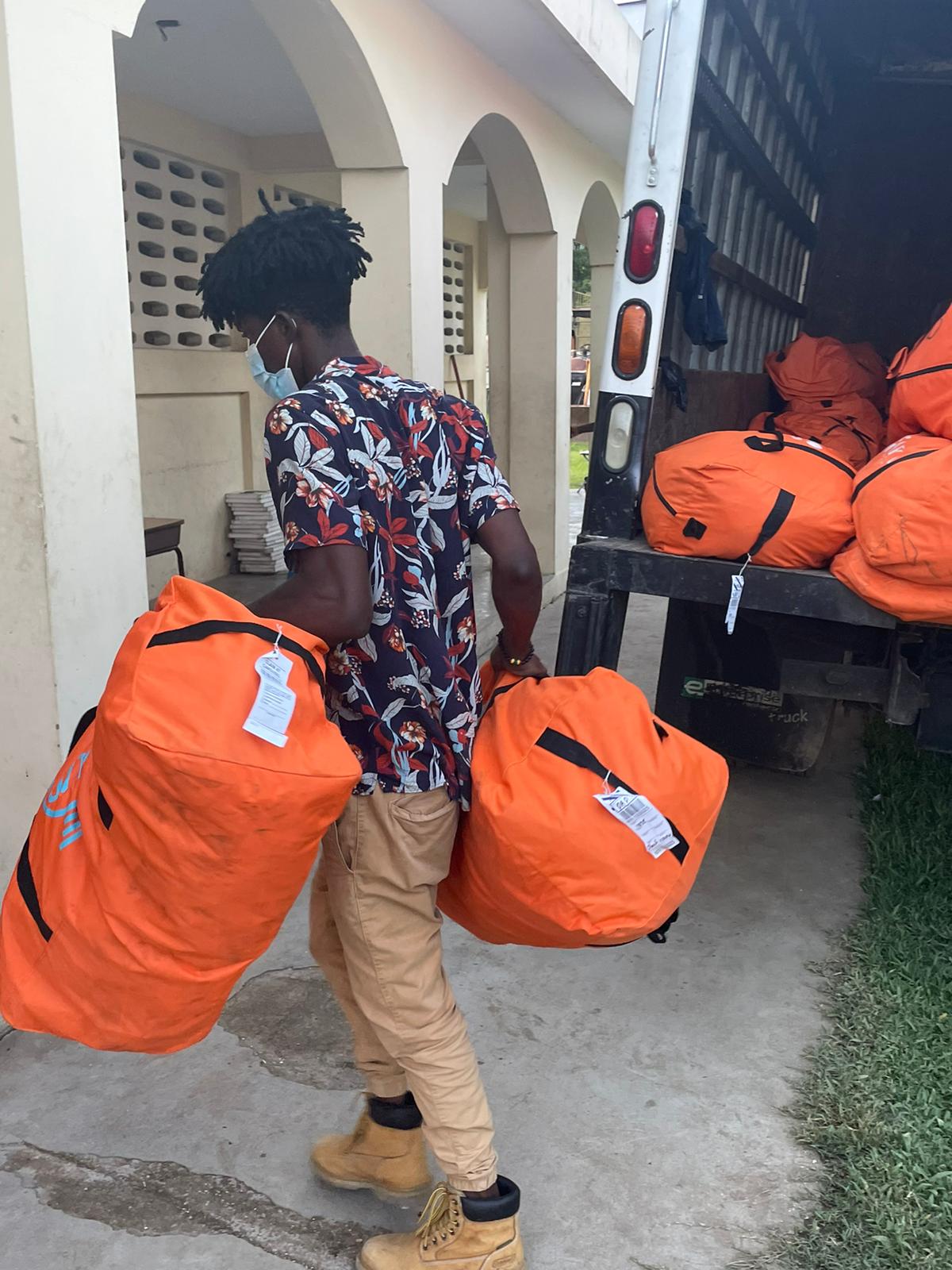
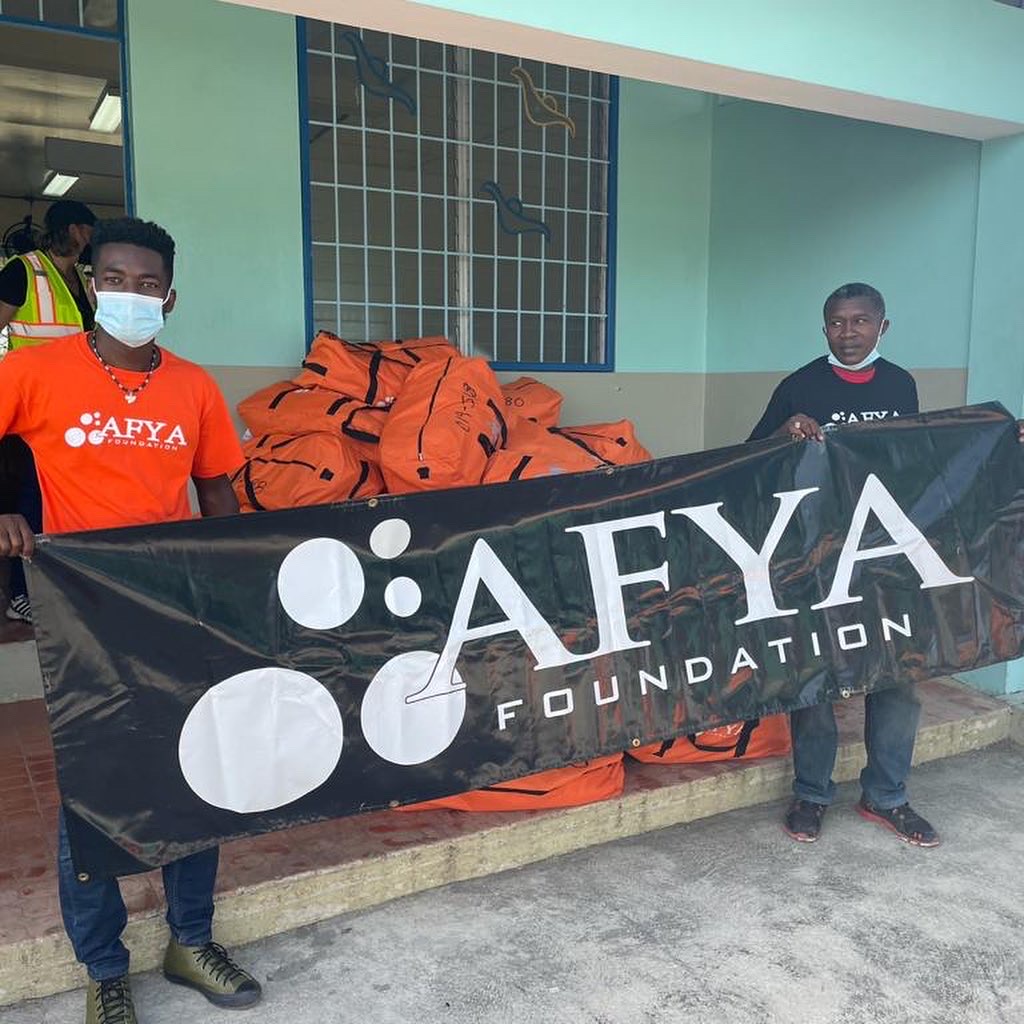
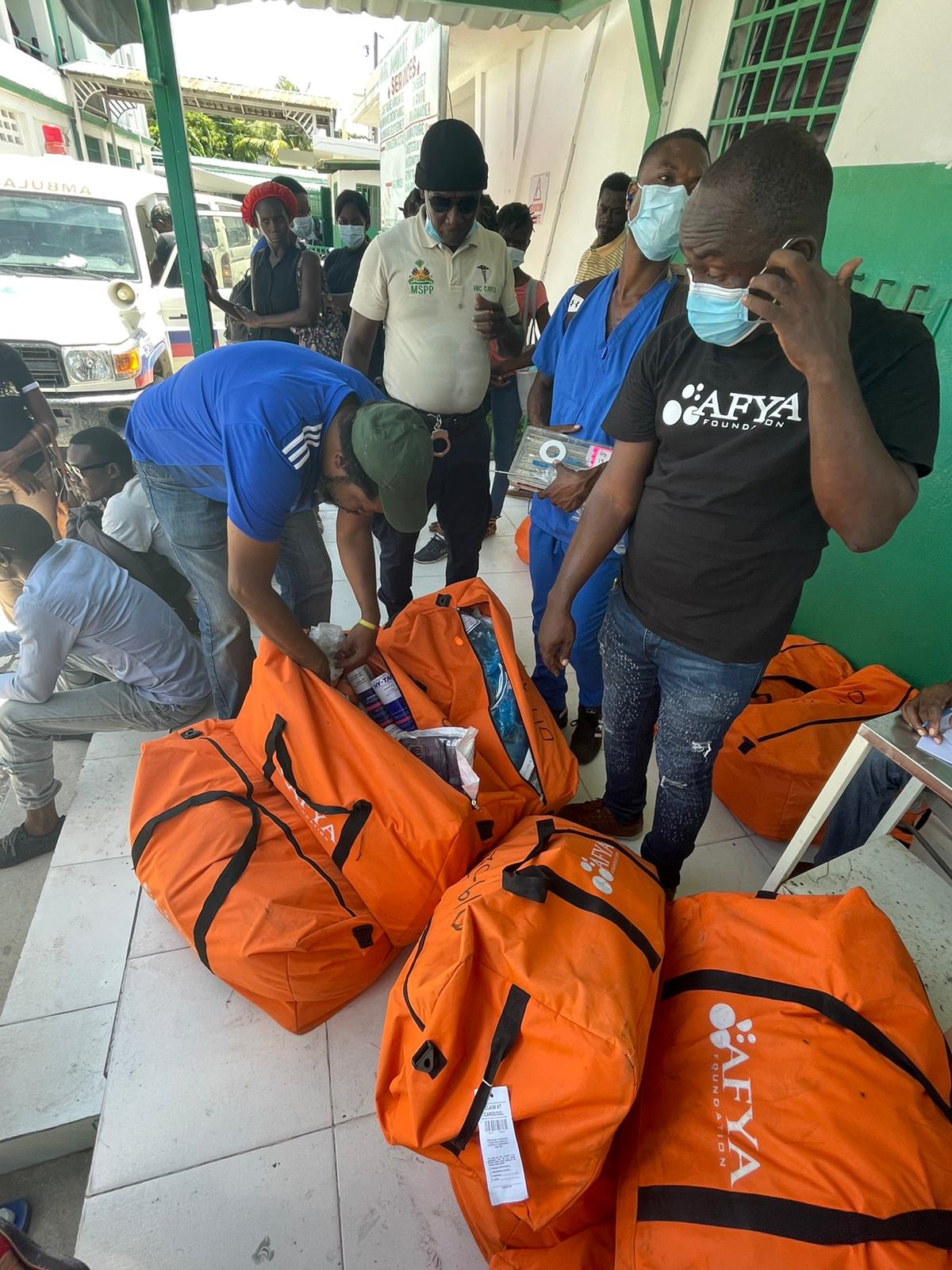
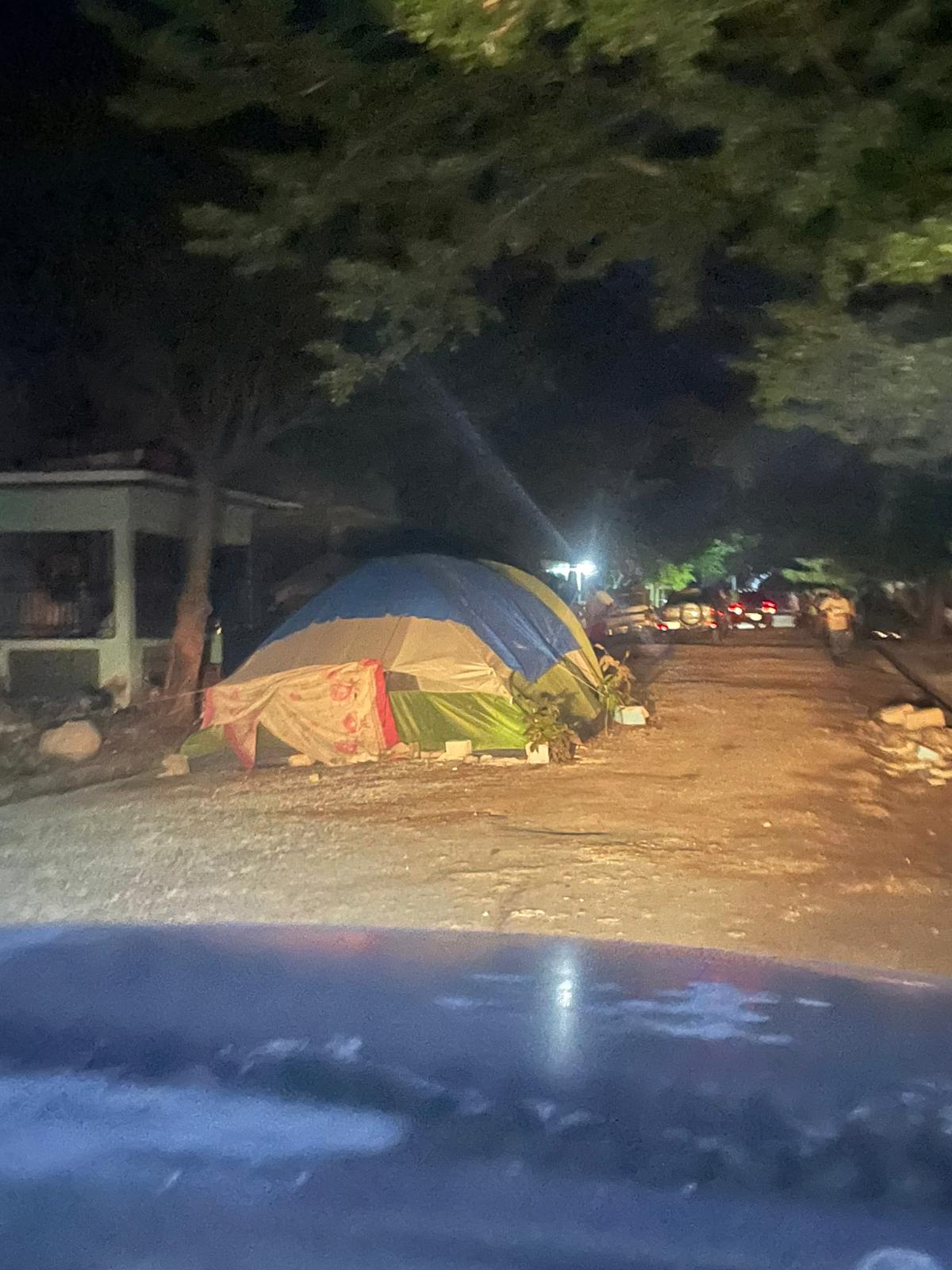
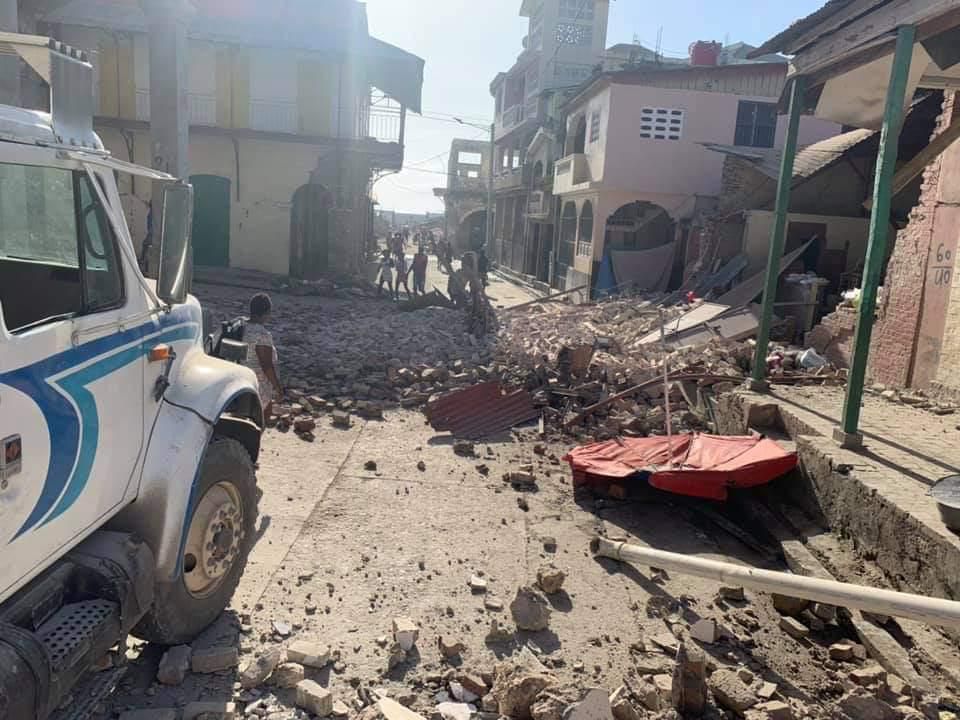
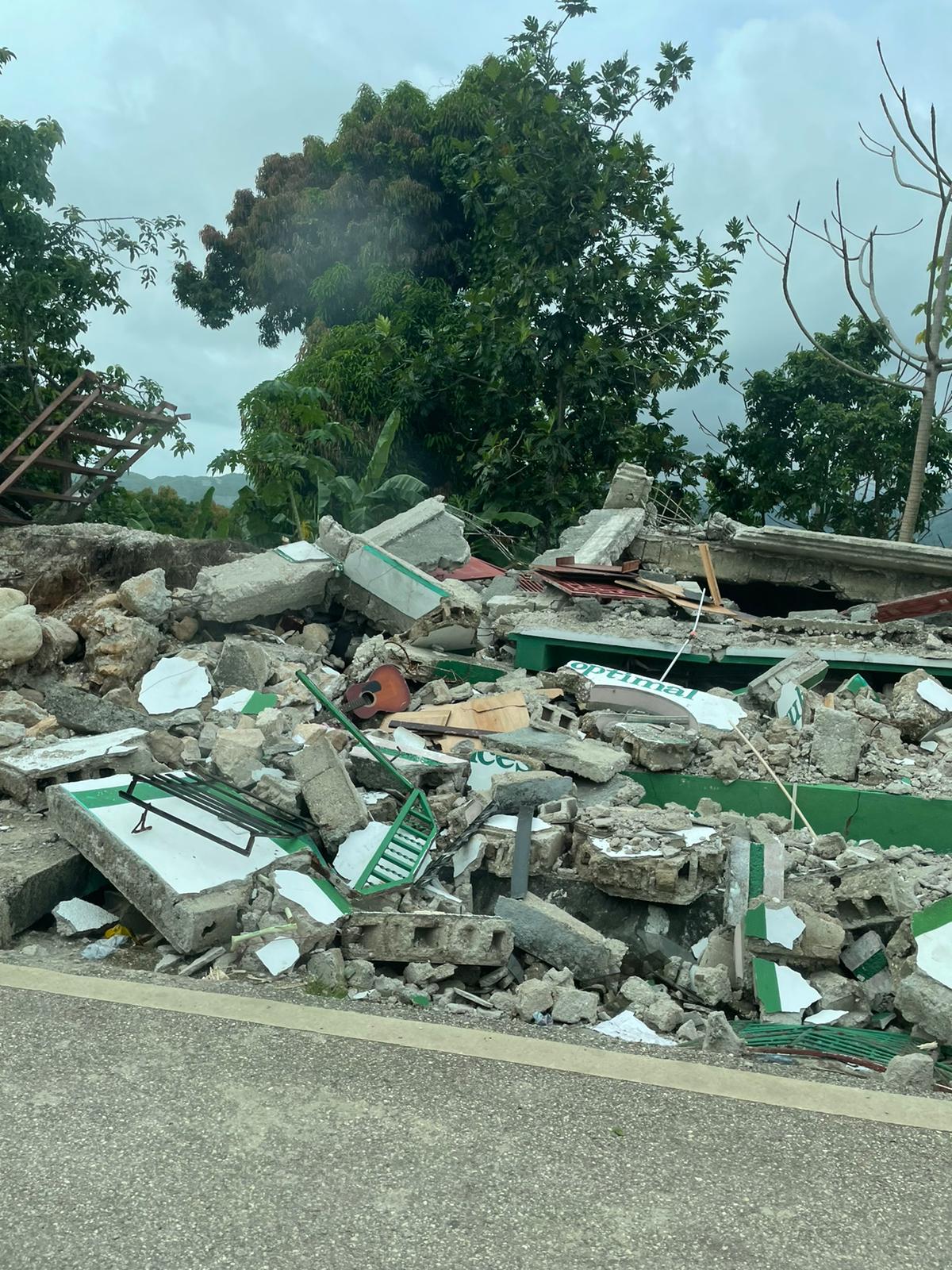
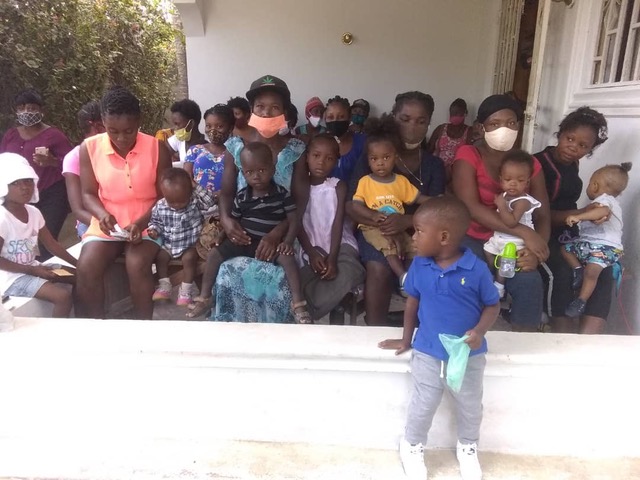
 supplies since early last week. Samson is one of HUFH’s original in-country leaders and an Afya Foundation volunteer. The Afya Foundation is a New York based nonprofit that provides an environmentally responsible solution to dire shortages of healthcare supplies around the globe by facilitating customized shipments of rescued surplus medical supplies to regions in need. Samson is in Haiti to assist with deliveries of supplies throughout Les Cayes and surrounding areas. HUFH is providing direct financial aid to Afya’s efforts in Haiti. You can read more about the Afya Foundation
supplies since early last week. Samson is one of HUFH’s original in-country leaders and an Afya Foundation volunteer. The Afya Foundation is a New York based nonprofit that provides an environmentally responsible solution to dire shortages of healthcare supplies around the globe by facilitating customized shipments of rescued surplus medical supplies to regions in need. Samson is in Haiti to assist with deliveries of supplies throughout Les Cayes and surrounding areas. HUFH is providing direct financial aid to Afya’s efforts in Haiti. You can read more about the Afya Foundation 